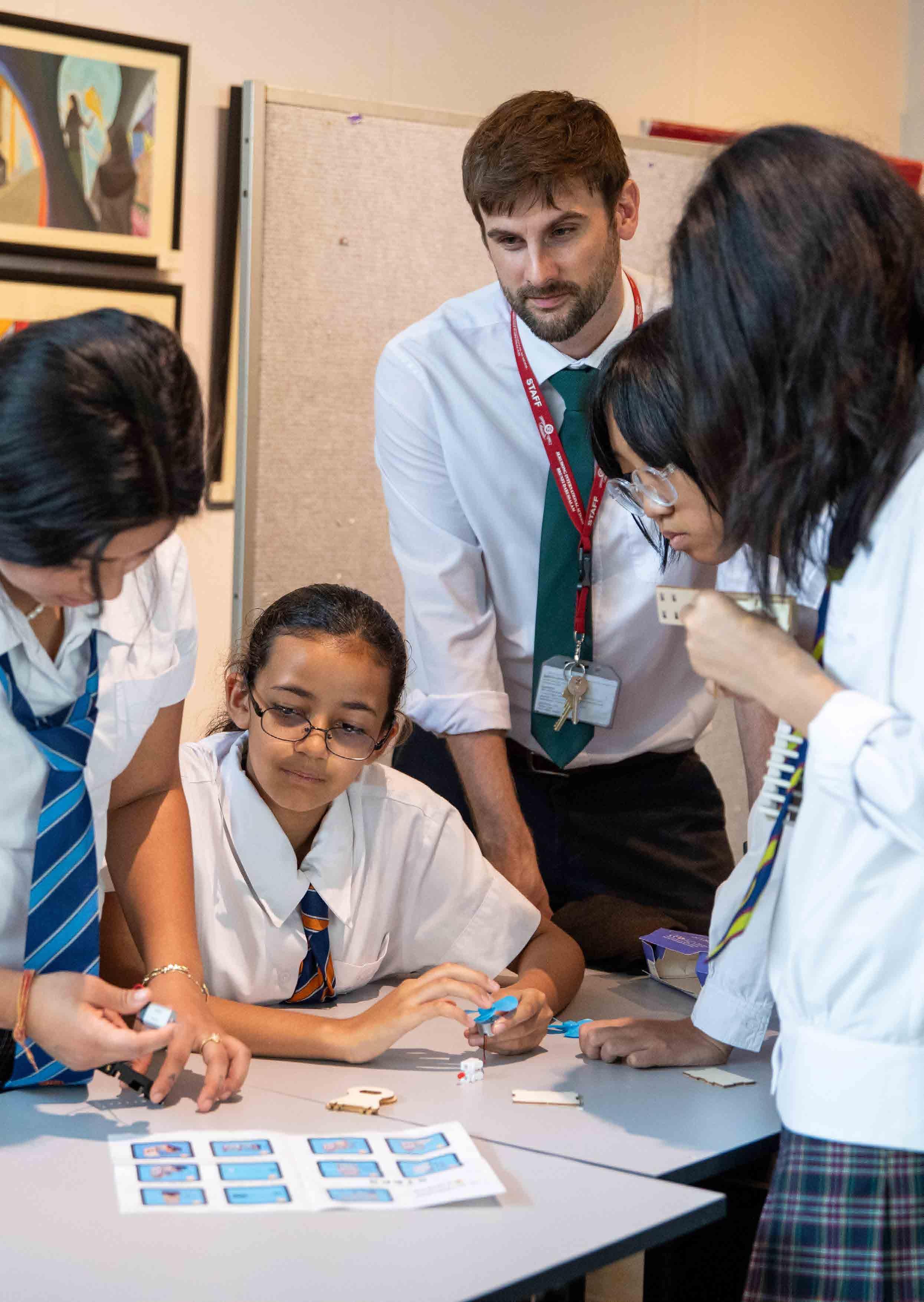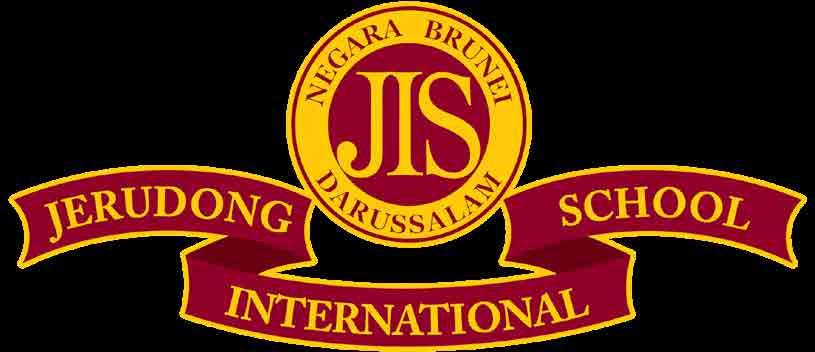



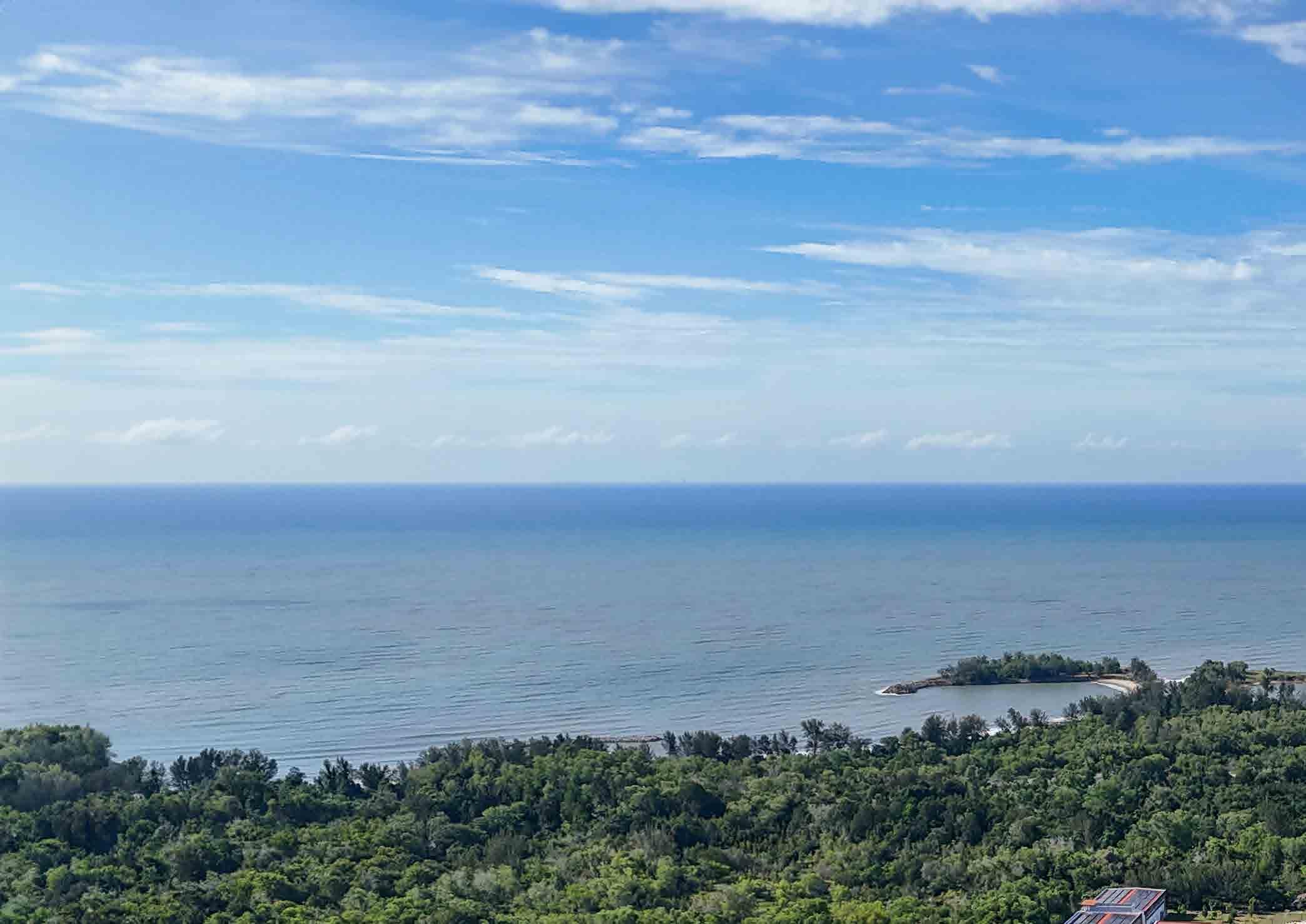








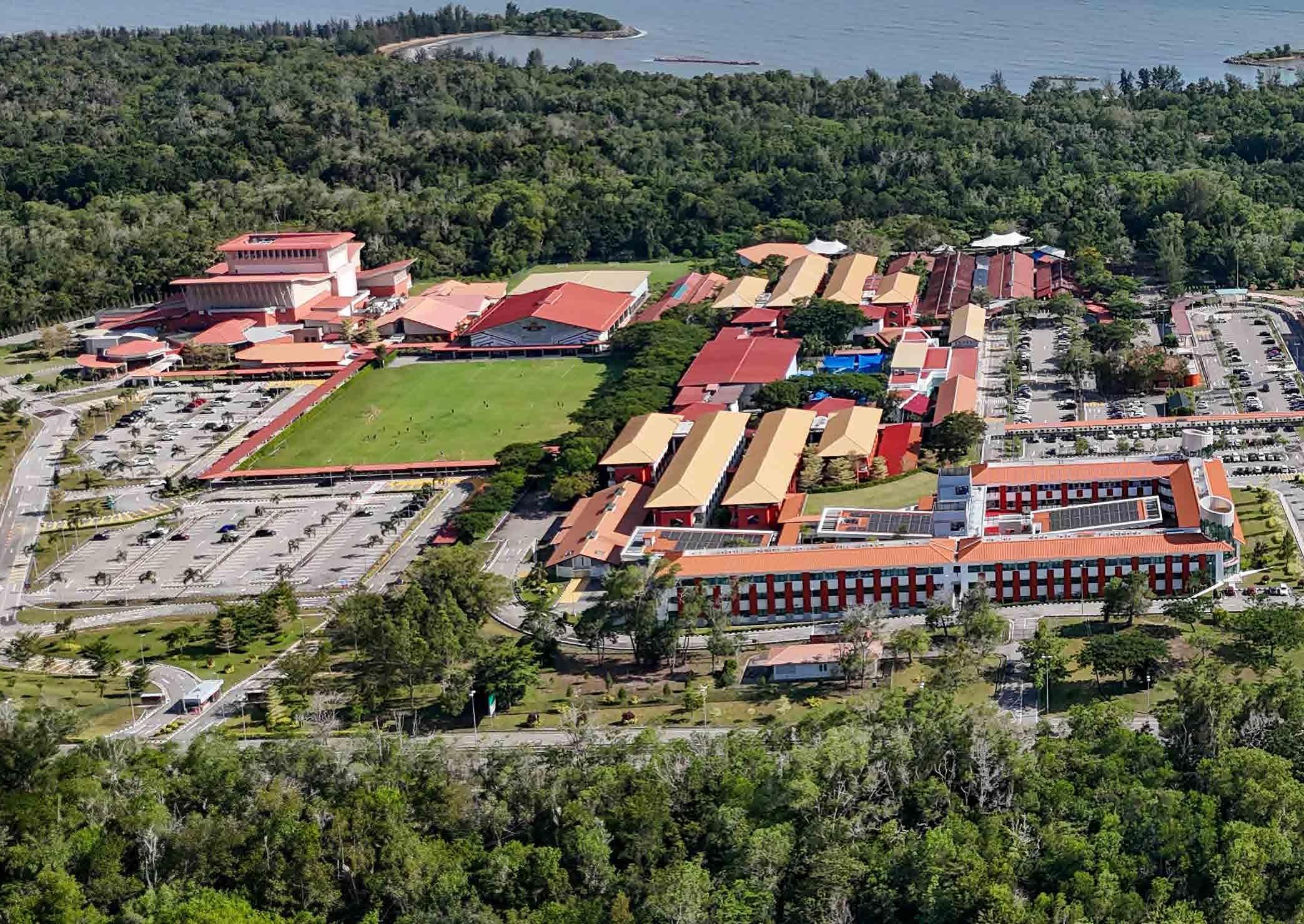
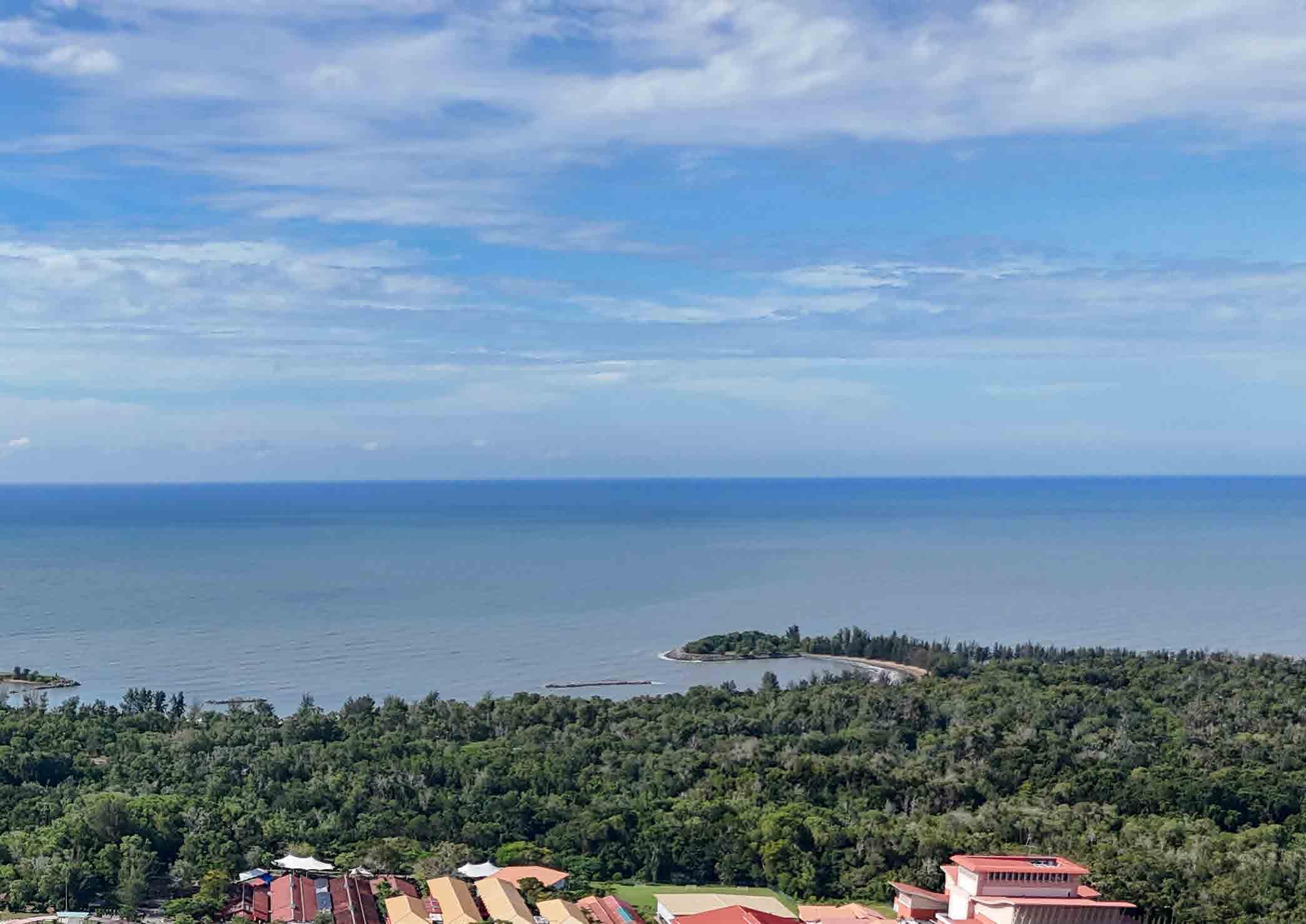
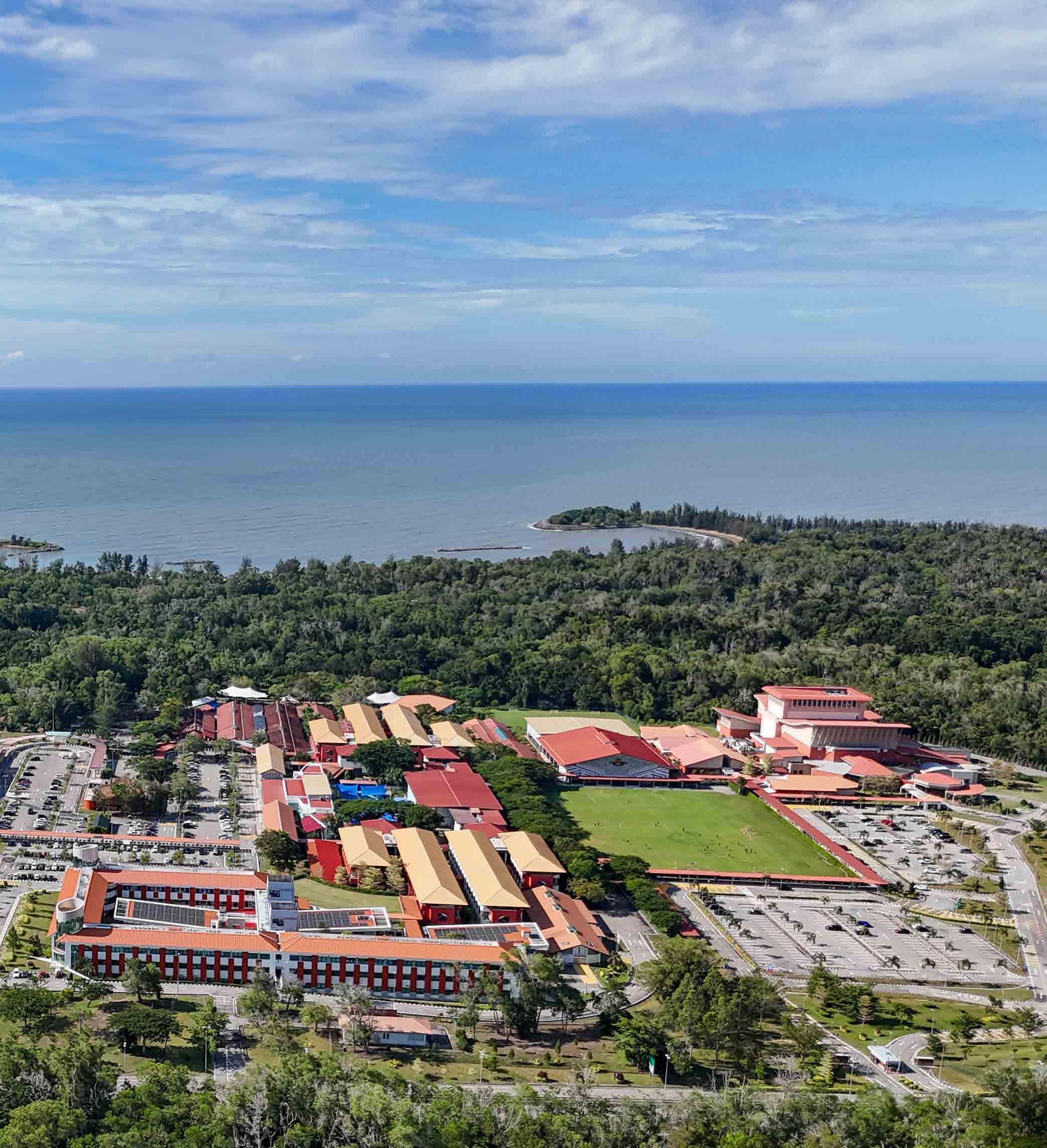

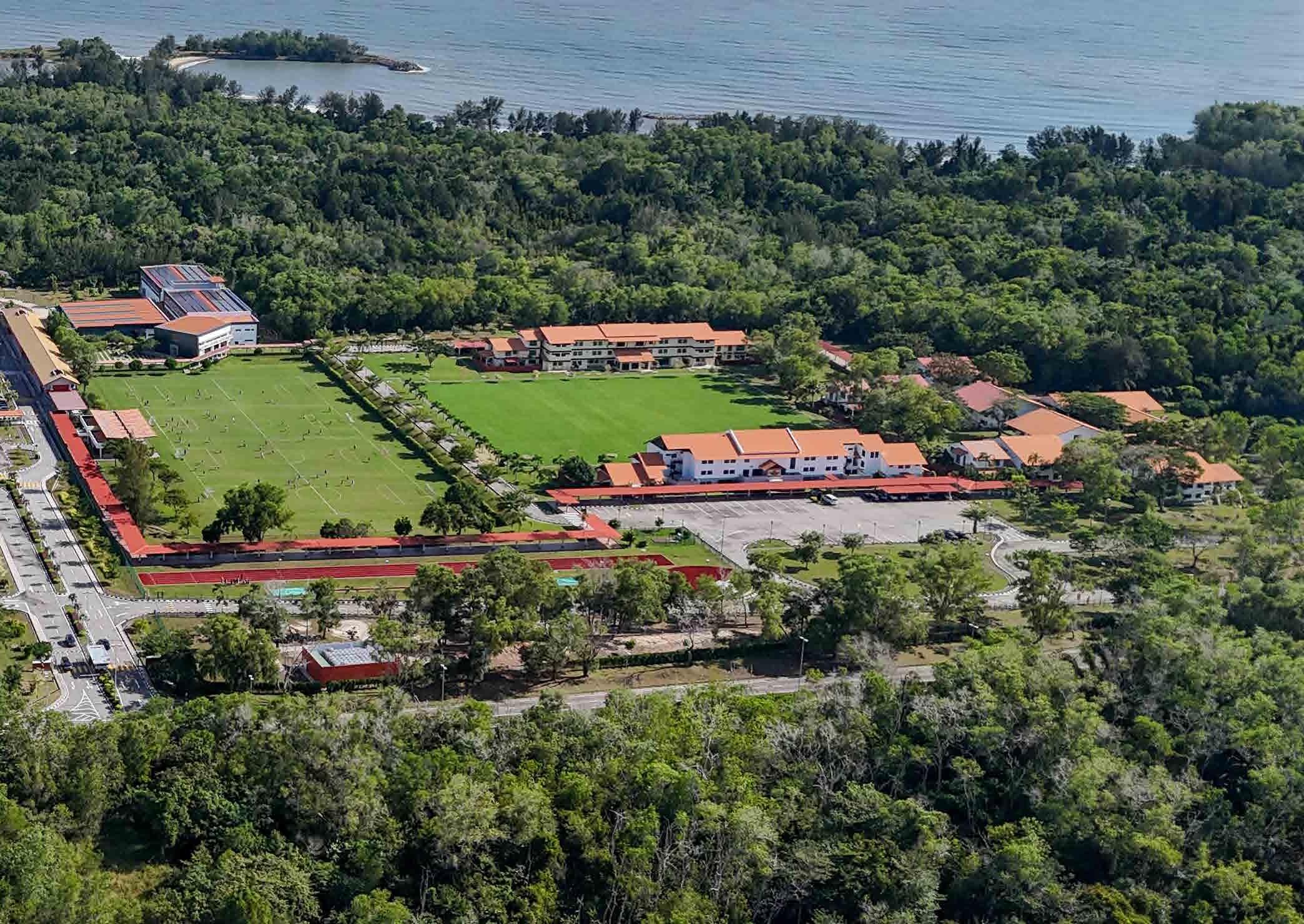
: Design & Technology
: Accounts, Admissions, Computing, English, Humanities, Laboratories, Business, Principal & Exams Office
: Science Shop : Stationery & Uniform Shop
A : Middle Years Office Learning Support
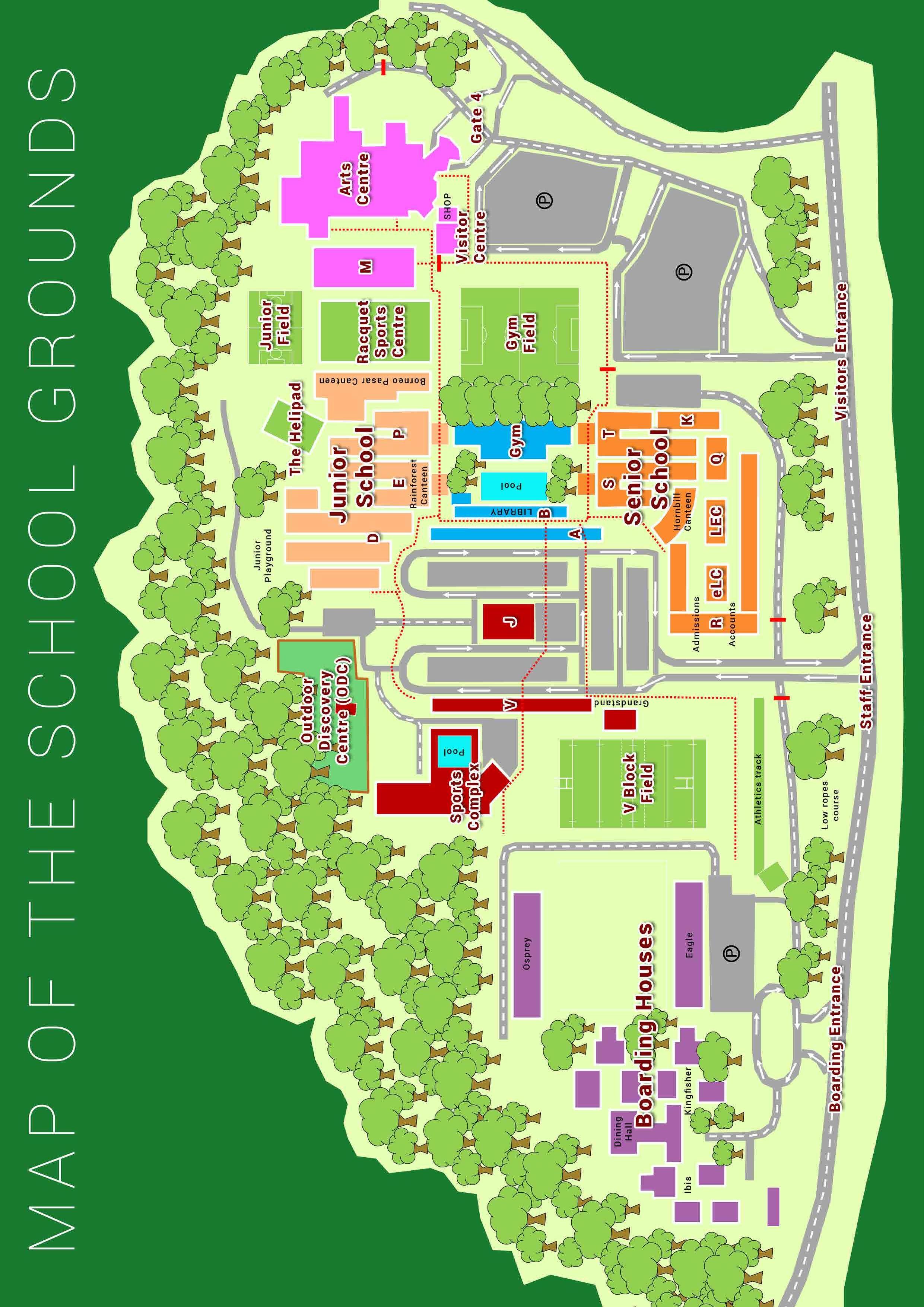
Centre : Drama
: Counsellors : Health Centre
: NurseryYear 2
: Years 3-5 & JS Office
: Maintenance
Design & Technology and Arts & Design
Lecture Theatre
: Parents’ Coffee Shop

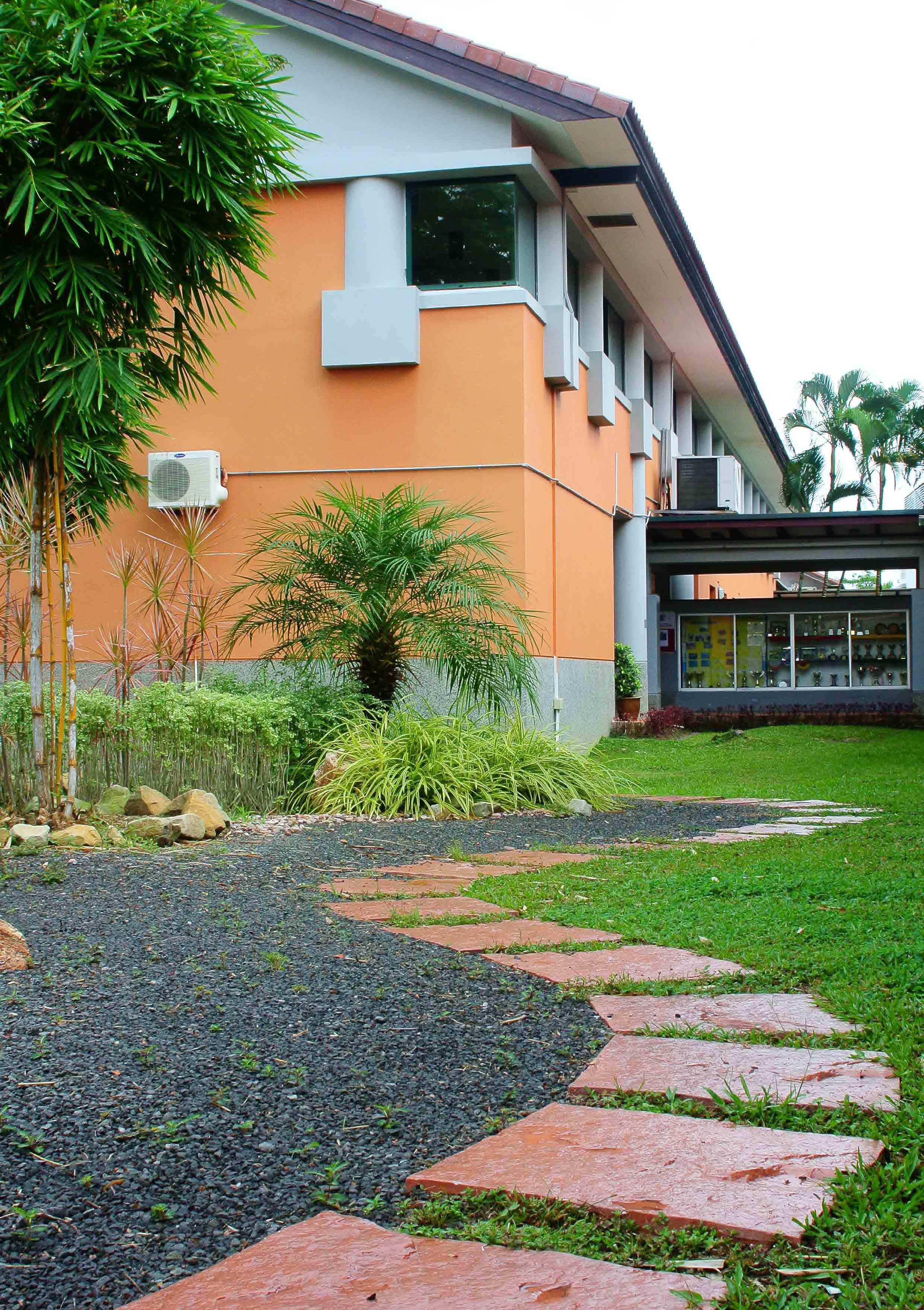

Mailing Address: P.O. Box 1408
Bandar Seri Begawan BS8672, Brunei
Executive Principal
Nicholas Sheehan

Street Address: Jalan Universiti Kampong Tungku Bandar Seri Begawan BE2119, Brunei



Executive Principal’s Secretary
Pui Yin Woo principal.secretary@jis.edu.bn ext. 7117
Vice Principal & Head of Senior School
Daniel Milner
Academic Director
Alex Cook
Pastoral Director
Lynsay Scott
Assistant Head of Senior School (Years 12-13)
John van der Marel
Assistant Head of Senior School (Years 10-11)
Ralph Morel
Upper Years Secretary
Amy Lai amy.lai@jis.edu.bn ext. 7116
Assistant Head of Senior School (Years 7-9)
Jennifer Cole
Middle Years Secretaries
Izzah Abdul Kadir
Aiman Ali myo@jis.edu.bn ext. 1100 ext. 1106
Accounts
Karen Yong
Wee Hui Tan accounts@jis.edu.bn ext. 1314
Stationery and Uniform Shop
Liza Sheriff jis.shop@jis.edu.bn ext. 5240/5244
Admissions
Rebecca Dillon
Kerima-Jo Rahman
Jennifer Ng
Farah Sabli
Sil Suan Tan admissions@jis.edu.bn ext. 1205 ext. 1206 ext. 1206 ext. 7100 ext. 1129
School Counsellors
Gavin Rodgers (Lead)
Anth McKay
Nadzirah Suhaimi counsellor@jis.edu.bn ext. 1211 ext. 2313 ext. 2313
admissions@jis.edu.bn or office@jis.edu.bn +673-241-1000 www.jerudonginternationalschool.com


Day Houses
Argus
Angela McCambridge hsms.argus@jis.edu.bn
Barbet
Antony McCambridge hsms.barbet@jis.edu.bn
Blackeye
Rachel Brown hsms.blackeye@jis.edu.bn Fireback
Olivia Prince hsms.fireback@jis.edu.bn
Frogmouth
Sue Mead hsms.frogmouth@jis.edu.bn
Hawk
Matthew Smith hsms.hawk@jis.edu.bn
Heron
Naomi Williams hsms.heron@jis.edu.bn
Monarch
Peter Foster hsms.monarch@jis.edu.bn
Sandpiper
Ingrid Lush hsms.sandpiper@jis.edu.bn Skylark
Yvette Conway hsms.skylark@jis.edu.bn
Swift
Dave Smith hsms.swift@jis.edu.bn Whistler
Juliette Horsford hsms.whistler@jis.edu.bn
Boarding Houses - Boys
Eagle
Dan Stirling hsms.eagle@jis.edu.bn Ibis
Ed Lockyer hsms.ibis@jis.edu.bn
Boarding Houses - Girls Kingfisher
Beenal Roberts hsms.kingfisher@jis.edu.bn Osprey
Jennifer May hsms.osprey@jis.edu.bn


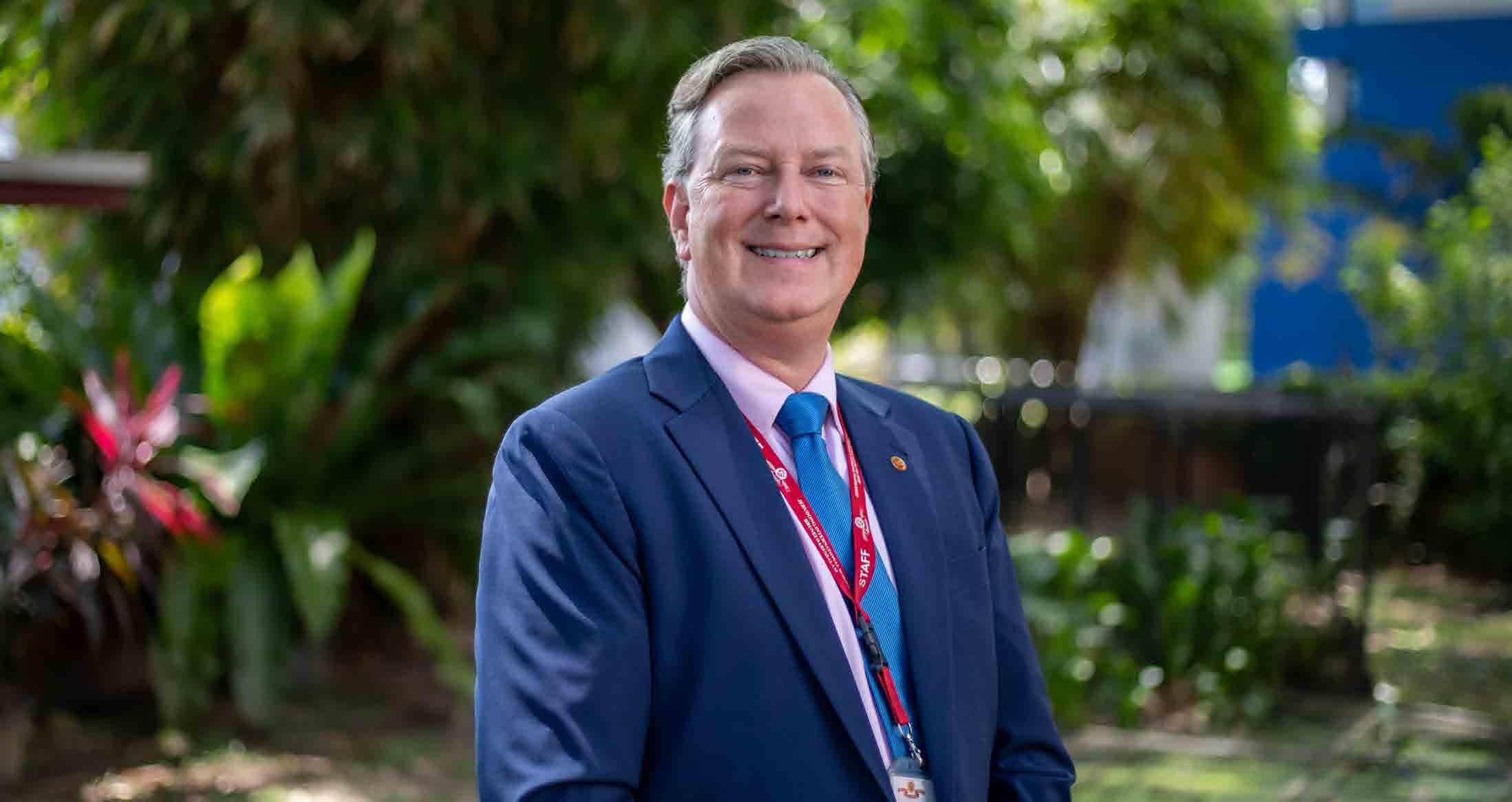
A warm welcome to Jerudong International School (JIS) in Brunei.
As a community, we are committed to creating an environment of excellence and holistic development, where every individual is encouraged to reach their full potential, both academically and personally. We are an academically selective school offering the British International School curriculum, and are very proud to be a Beacon Status School following our COBIS Patron’s Accreditation. This means that parents can be safe in the knowledge that when they choose to enrol their child in JIS, they will be receiving an outstanding, transformative education.
We work hard to create a challenging and nurturing environment that enables each child to flourish. Students consistently excel in their examinations and go on to top universities around the world, including Oxbridge and the Russell Group of universities. We believe in the traditional values of an independent school education but we also embrace exciting innovative, new practices.
At JIS, we are proud to uphold a strong ethos based on our values of Challenge, Respect and Inspire encouraging responsibility and a passion for learning. We believe in the power of collaboration and
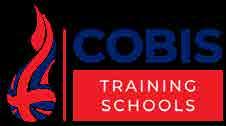

inclusivity and our curriculum is designed not only to challenge students to think critically but also to inspire them to become confident, creative and compassionate leaders of tomorrow. We are dedicated to developing well-rounded individuals who are not only academically proficient but also socially responsible, culturally aware and globally minded. Whether through our academic programmes, extracurricular activities, or pastoral care, we aim to provide an enriching educational experience that prepares students for success in an ever-changing world.
We also appreciate the important role that parents play in guiding the educational progress of their children and work closely in partnership with our parents, to support us in reinforcing our values.
We warmly welcome you to visit us and see why Jerudong International School is a truly exceptional place to learn and grow.
Welcome to Jerudong International School!
Nicholas Sheehan EXECUTIVE PRINCIPAL





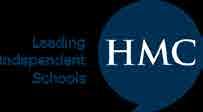


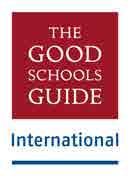


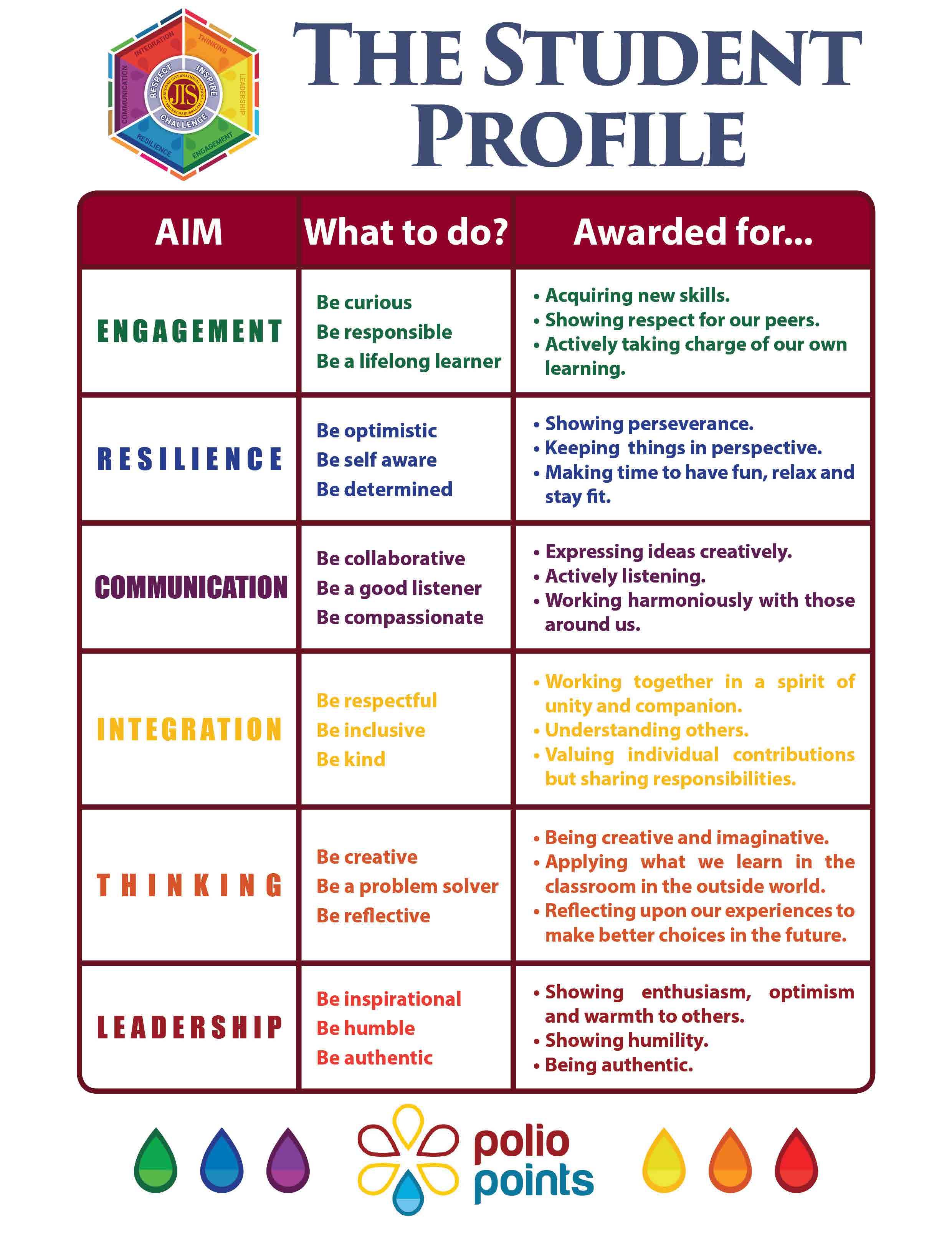

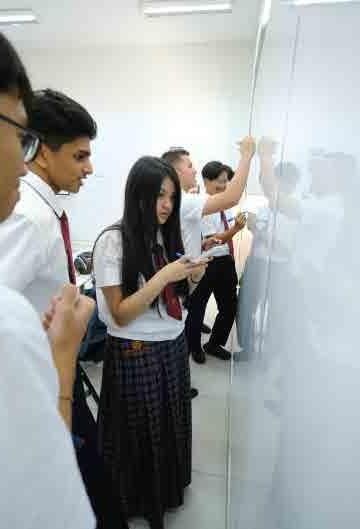
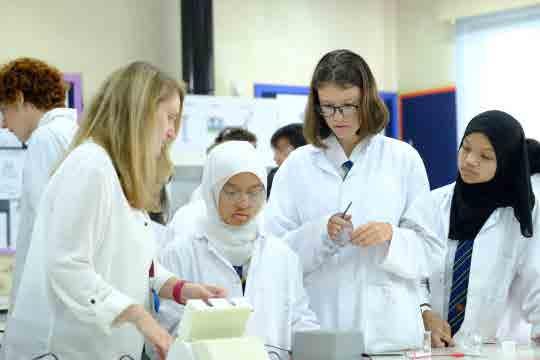
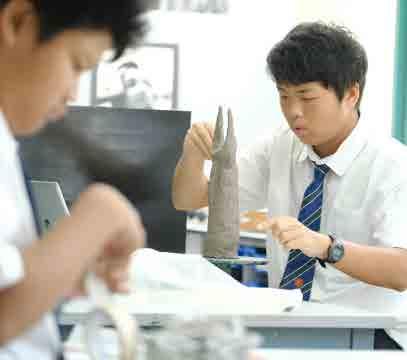
PEACE WEEK
EARTH WEEK
INTERNATIONAL WEEK
FOOTBALL FUNDAY
WAR OF COLOURS
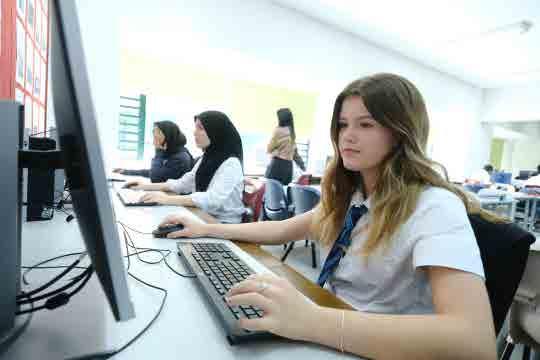
MUSICAL PRODUCTIONS
SHOWCASE CONCERT
HOUSE CONCERT
LUNCHTIME LECTURES
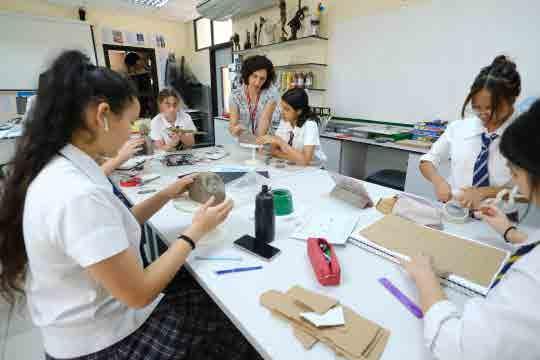
FOBISIA GAMES
HOUSE SPORT
DUKE OF EDINBURGH
MODEL UNITED NATIONS
ECO JIS
BORNEO PROJECT
PENAN SUPPORT
DIVING CLUB

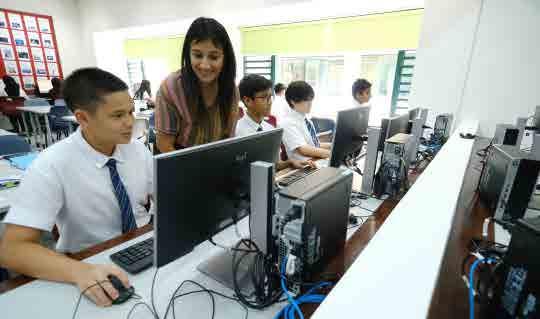
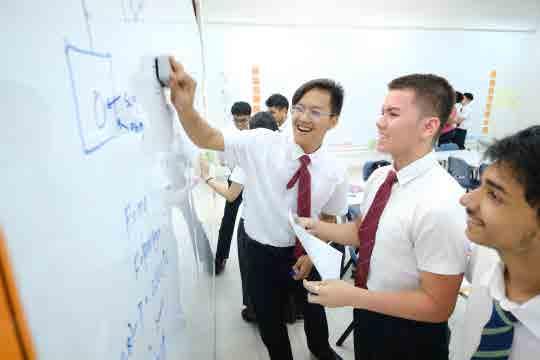
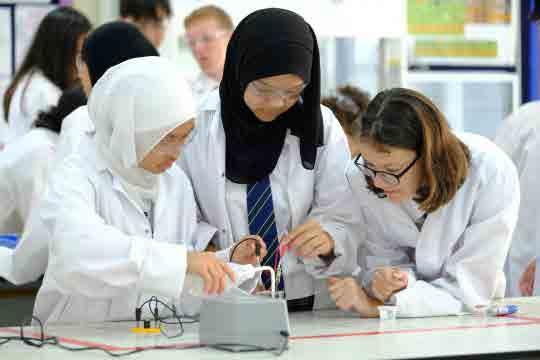
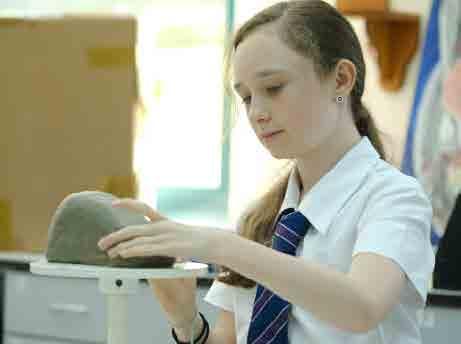
THE CHOICE IS YOURS.

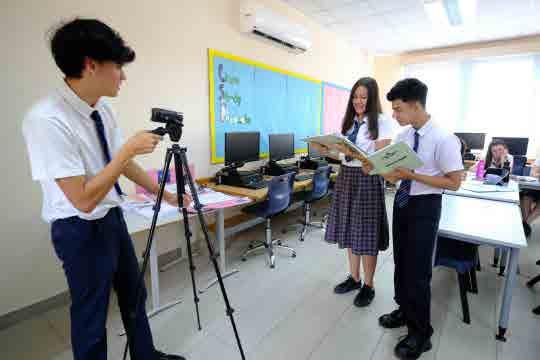

Hello! As members of the current Year 10 Student Council, we are thrilled to share our experience with you as you embark on this exciting two-year journey towards your IGCSE’s. At the beginning of Year 10, we were offered a unique opportunity to explore new elective subjects such as Business Studies, Economics, Media Studies, Design and Technology, plus so much more. Choosing subjects that are unfamiliar at first, provides you with valuable insights into diverse and fascinating topics. The variety of extracurricular activities at JIS is truly remarkable, spanning from dance and art to yoga. There are plenty of opportunities for sport too including the Phoenix League competitions, an experience that not only enhances your skills but also forges strong bonds with teammates across different year groups.
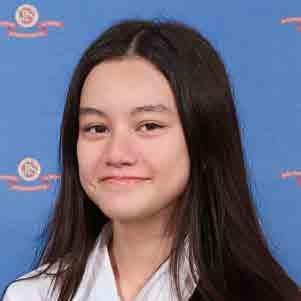
There are numerous avenues for personal growth, including drama productions, a diverse range of CCAs, and participation in the Duke of Edinburgh award - all of which will create long lasting, happy memories. Serving on the Year 10 Council is a gratifying experience, developing leadership skills through workshops, assemblies, and social activities.
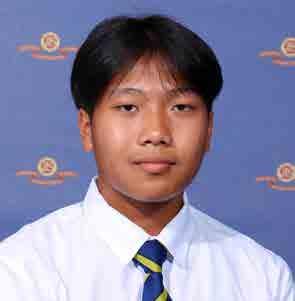
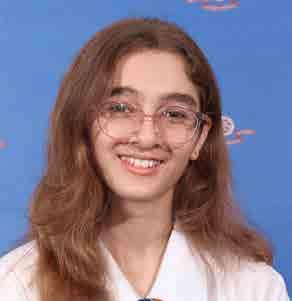

The core subjects at JIS are taught in a manner that encourages critical thinking and application, preparing us for the future. We would like to take this opportunity to extend our sincere gratitude to all teachers and classmates for their valuable contribution to our learning. For anyone joining JIS in Year 10 and 11 - we look forward to forging new friendships and creating memorable experiences together. - Year 10 Student Council
Welcome to the exhilarating journey of Year 11 at Jerudong International School! As current students reflecting on our IGCSE experience, we remember the initial mix of fear and excitement that surrounded this crucial academic juncture. Surprisingly, the feared IGCSE years turned out to be an unexpected adventure, filled with new friendships and a strong sense of belonging.
Facing the challenges of exams was made easier by the knowledge that we were part of a larger community of students, all navigating similar emotions. Together, we’ve built unconventional and unexpected friendships that have strengthened our bond as a year group. Notably, our collective efforts have extended beyond academics, as we’ve come together in various activities and in supporting various charities, symbolising our shared ambition and the myriad opportunities awaiting us in the future.
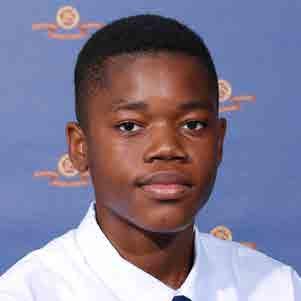
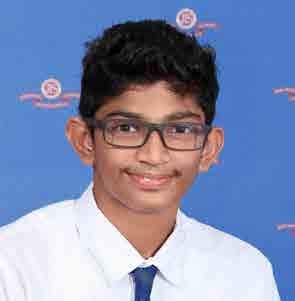
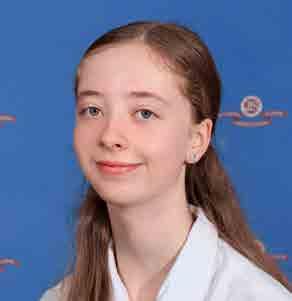
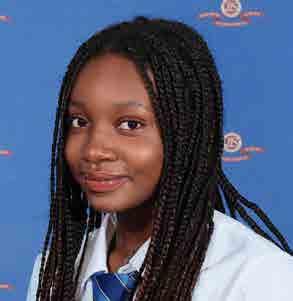
It is a time to embrace the different subject options that cater to diverse interests. Our Phoenix League teams engage in spirited competitions across various sports, vying for the coveted Phoenix Trophy. The drama department, and the music department, stages impressive performances and musicals, emphasising the importance of creative pursuits alongside academics.

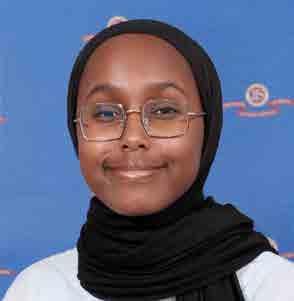
The IGCSE programme, a cornerstone of our academic journey, offers a broad spectrum of subjects—from creative disciplines like art, music, DT, and drama to STEM subjects such as sciences, maths, computing, and business, along with a choice of languages. This freedom to choose subjects empowers us, the students, to shape our lives and control our futures. Moreover, our dedicated tutors, teachers, and older students generously share insights into study skills, revision techniques, and maintaining a healthy balance between academic pursuits and personal happiness.
As you join Year 11 at JIS, know that you’re stepping into an environment that encourages exploration, celebrates diversity, and provides the tools for a well-rounded and holistic education. Contribution to our vibrant community is encouraged, and together, we can make the most of the exciting opportunities that Year 11 provides. - Year 11 Student Council

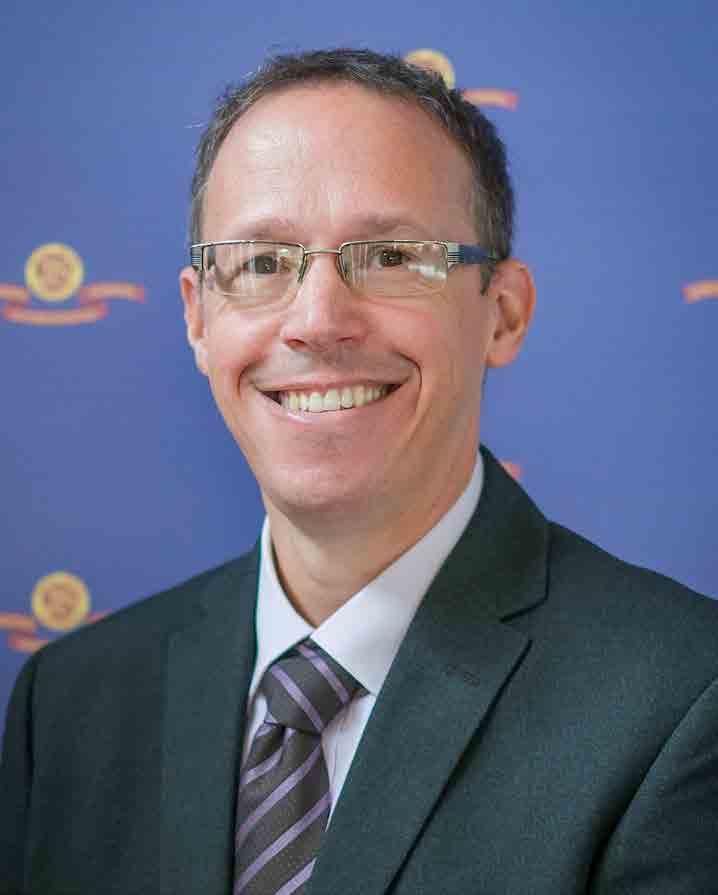
The IGCSE years at Jerudong International School represent a pivotal stage in our students’ educational journey. During Years 10 and 11, we aim to nurture inquisitive, confident, and motivated learners equipped with a broad range of academic and personal skills. Our focus is on empowering students to excel in their studies while encouraging them to develop holistically through our extensive co-curricular programme.
We believe that growth beyond the classroom—through sport, the arts, leadership opportunities, and service activities—enhances self-esteem and enriches academic achievement. This balance is a cornerstone of the transformational education we provide at JIS.
In Years 10 and 11, students follow the IGCSE programme, which culminates in internationally recognised external examinations at the end of Year 11. This rigorous and comprehensive curriculum is designed to prepare students for the next stage of their education, whether they pursue A Levels, the BTEC programme, or the International Baccalaureate Diploma Programme in Year 12.
Our diverse and international community inspires students to broaden their perspectives and deepen their understanding of the world. By learning alongside peers from a variety of cultures and national backgrounds, students develop empathy, global awareness, and the ability to collaborate across differences—skills that are essential for life beyond JIS.
The House system at JIS fosters a profound sense of belonging and a strong support network for every student. Led by experienced Housemasters and Housemistresses, along with a team of dedicated tutors, our House system ensures students have the guidance and encouragement they need to thrive.
Within this framework, we promote values of kindness, humility, and social responsibility. Our Polio Points rewards programme celebrates contributions to the community, encouraging students to embrace ‘teaspoons of change’—small but impactful actions that make a positive difference locally and globally.
Our vertical tutoring system, which places students from Years 10 to 13 in the same tutor group, cultivates meaningful connections across age groups. Younger students benefit from the guidance and mentorship of older peers, while those in Years 12 and 13 have the opportunity to develop leadership skills as role models and mentors. This approach reflects our commitment to holistic education, building confidence, collaboration, and compassion in all our students.
We recognise the vital role parents play in their children’s success and value the partnership between school and home. By supporting the school in reinforcing our core values, parents help ensure that students:
• Engage fully in lessons and academic pursuits.
• Participate wholeheartedly in co-curricular opportunities.
• Demonstrate respect, tolerance, and understanding of others.
The IGCSE years are a time of challenge, growth, and self-discovery, and we are committed to ensuring this journey is both rigorous and enjoyable. Together, we will empower our students to realise their full potential and prepare them to lead with purpose and compassion in an ever-changing world.
Dr. Daniel Milner VICE PRINCIPAL & HEAD OF SENIOR SCHOOL

Jerudong International School is an academically selective school that follows the British International School system. We have the Patron’s Accreditation from COBIS and are a Beacon Status School, we are an accredited IB World School and a HMC School. Our schooling goes from Nursery through to Year 13. Our school year is from late August to early July. We have approximately 1680 students from 45 nationalities.
The Junior School is Nursery to Year 6. The Senior School comprises Years 7 to 13. Years 7-9 are known as the Middle Years, with class sizes up to a maximum of 22. Years 10 & 11 culminate in the IGCSE and class sizes are usually a maximum of 20 children. Years 12 - 13 are known as the Sixth Form or Pre-University and we offer the A-Level Programme, the International Baccalaureate Diploma Programme (IBDP) and the Pearson BTEC Level 3 Extended Diploma.
The School is situated on an extensive 120 acre single campus with outstanding facilities. The campus is divided into ‘zones’ for different purposes e.g. Junior School, Boarding and a Middle Years area; so whilst the campus is extensive, it is not daunting for new students joining us. We work very hard to help students settle and familiarise themselves with the campus. Our outstanding facilities include 27 science laboratories, specialist classrooms, Performing Arts Centre, an Outdoor Discovery area, Sports Complex plus more.
Our qualified and experienced teachers are primarily from the UK. All employees of the School are safety checked and police screened prior to employment. The average length of time that a teacher stays in JIS is 8 years! This means that we have a stable teaching community who are invested in the students.
1
1
1
1
1
Parents and teachers together play an important role in educating children and need to support each other in order for their child to be as successful as possible. We welcome parents into the school and appreciate all offers of help. Parents work alongside staff and children in a variety of roles including student reading, assisting on school excursions and as leaders of Co-Curricular Activities (CCAs). We approach parents to request help with specific tasks but we welcome any skills or expertise that parents feel they can offer. The relationship between staff and parents is open and friendly.
We value good communication with parents and recognise the importance of keeping channels of communication open to ensure all students have a positive and successful experience during their time in JIS. Communication is regular and occurs in formal situations such as Parent Meetings, Parent-Teacher Consultations, written reports and during informal situations such as a brief chat at the end of the day. Teachers are happy to make an appointment to meet with parents, or speak on the phone, if there are any specific concerns or questions concerning your child. The school also offers information directly to parents through the Parent Portal on Firefly. Parents can access data on attendance, timetables and achievements as well electronic versions of reports for their child. You can also follow us on a range of social media, including Instagram, X (formerly Twitter), Youtube and Facebook.

The school calendar is posted on the school website: https://www.jerudonginternationalschool.com/school-life/calendar
26 August - 12 December 2025
Mid-Term Break: 20-24 October
End of Term Holiday: 13 December 2025 - 4 January 2026
6 January - 19 March 2026 Mid-Term Break: 16 - 23 February
of Term Holiday: 20 March - 5 April 2026
6 April - 3 July 2026
Mid-Term Break: 25 May - 1 June
of School Holiday Starts: 4 July 2026
The School Day starts at 7.30am, Monday to Friday. We expect our students to be punctual and on site by 7.25am. School finishes at 3pm for Senior Students, Monday - Thursday. It finishes at 11.45am on Friday. Co-curricular activities can take place before or after school. Some additional activities are also on offer at the weekends.
Regular attendance at school is a key factor in ensuring your child’s academic success at school. Please ensure that your child attends school as often as possible and arrives punctually at 7.25am. The attendance register is taken each morning and also in each lesson. If your child is late to school it is important that you notify the School office and your child’s Tutor in order to update the register. If for any reason your child needs to be excused from PE lessons or other school activities, it is important that they bring a letter of explanation and hand this to their Tutor or subject specialist. We strongly discourage parents from taking their children on holidays during term time. This is likely to have a negative impact on their educational development and may affect their final I/GCSE examination results.
At JIS, we believe strongly in the education of the whole child and encourage them to make the most of all of the opportunities available to them. Although academic work is important, education is not just about acquiring paper qualifications. The promotion of essential physical and personal skills such as communication, cooperation and problem solving skills, leadership where appropriate, form the focus of the extensive Co-Curricular Activities programme. All activities are designed to excite and enthuse students, encouraging them to willingly offer input, challenge their understanding and stretch their imagination. These are significant opportunities and they offer our students the chance to develop personal skills and qualities which will stand them in great stead throughout their lives. Each term students make their selections based on the wide range of activities on offer. Students sign up by going to JIS School Buddy link: https://jis.schoolsbuddy.net (Only available to students from their first day in school).

Students should not be on the premises after 5:00 pm, unless they are attending a CCA or Ugama lessons. They should be picked up promptly at the end of the day or after a CCA or swimming lesson.
Students can enrol in the School’s Instrumental Music Programme. Students receive tuition in an instrument of their choice with a specialist music teacher. These lessons are scheduled during the school day. Individual and shared lessons are available. Parents are able to hire instruments from the Music faculty. Fees for this programme are additional to the tuition fees. For more information about this programme and the fee structure contact the Music secretary or the Head of Music at music@jis.edu.bn
Firefly is our online learning platform that brings together students, teachers and parents. It allows us to set homework, track progress and share resources. Firefly makes it easy for students to access all the resources they need to stay organised with their school work and homework. It helps students:
• Stay organised and submit work, from any device.
• Access learning resources from anywhere.
• Collaborate with teachers and peers.
Parents can also be involved with their son or daughter’s learning. They can:
• Check homework and timetables for their son or daughter.
• Access their son / daughter’s School Report online.
• Engage with their son or daughter’s learning.
• Access a large amount of general information about the Houses and subjects.
• Access a ‘Parent Information’ section with lots of useful information e.g. Menus etc.
• Access the ‘Events’ to find out what is happening in the School
Parents can access the Firefly Platform from their child’s first day in school.
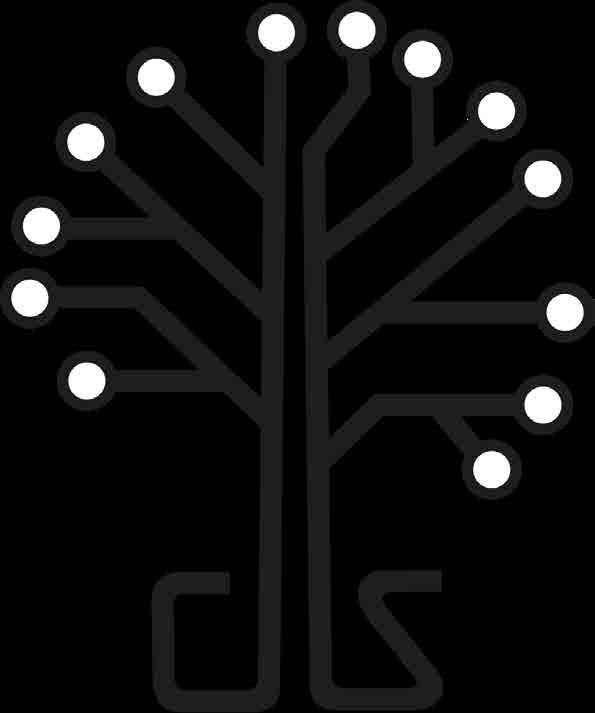

The School campus has full WiFi access and all students have access to the School’s network. Students are given an account name and password for access. The School has an excellent website which provides information about the school and its curriculum. The address of the website is www. jerudonginternationalschool.com. Once enrolled in the school, students have access to Firefly - a learning portal. This is also used by parents and teachers, with different permission levels. Parents can access personal information about their child as well as detailed information about the curriculum and life in school.
Digital learning is key to ensuring that every student gets the most out of their JIS learning experience. Our policy of anytime, anywhere learning has led to students using prescribed digital devices to access the sitewide Wifi.
This easy access to technology provides many opportunities to assist our students organisational and planning skills. By using their device to access Firefly, our live planner, they will have up to date information regarding assembly, CCA, House, and sporting arrangements. They will also have quick access to their lesson timetable and can easily email staff for help and advice.
Students are expected to behave responsibly with technology and once they have been given a login name and password they are expected to read and complete the ICT Acceptable Use Policy form to ensure that they use these facilities in accordance with the school’s terms and conditions. Parents are also required to sign this form. This form, combined with our internet filters helps us keep students protected and safe. All students in Years 10 and 11 are expected to bring their own digital device (Chromebook or laptop) to use as a learning and organisational tool.



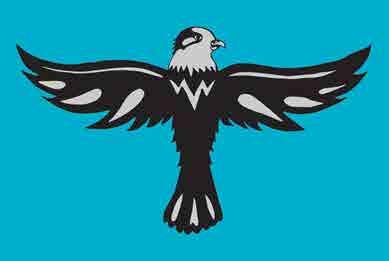

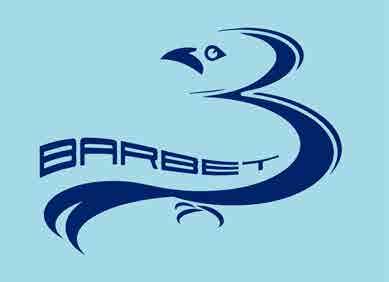

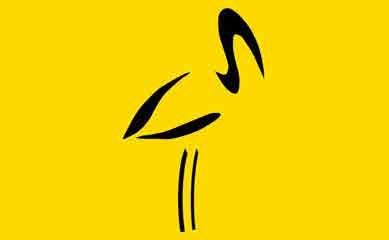
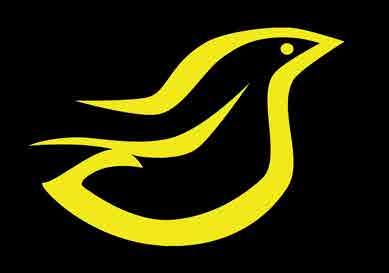
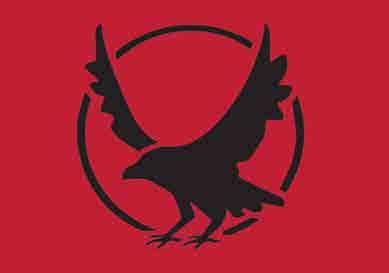
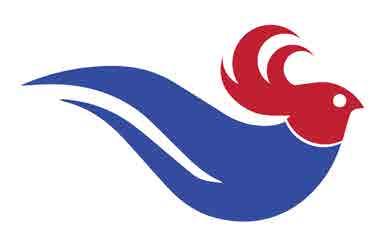

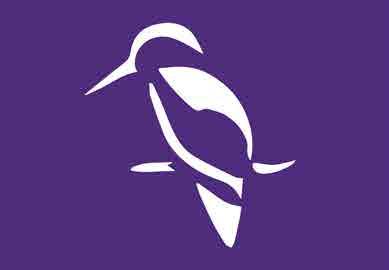
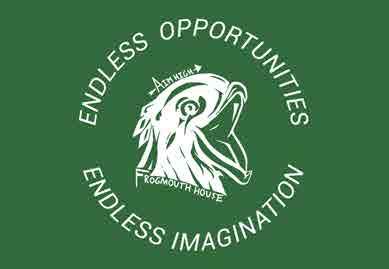
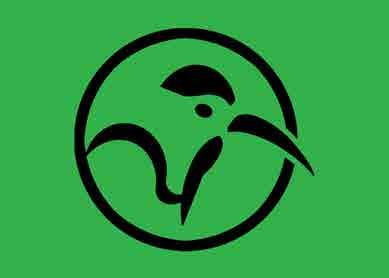
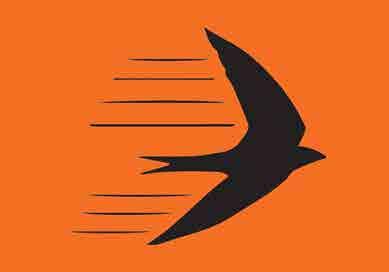
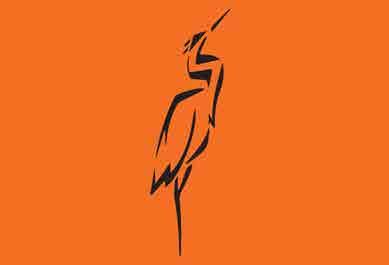
All Senior School students (Years 7–13) are allocated to a House. A House is a community of up to 70 students. There are eight girls’ Houses and eight boys’ Houses, with each House having a brother / sister House of the opposite gender. The House system is in place to provide an avenue for pastoral care, competition and camaraderie amongst the students. Siblings of the same gender are placed in the same House upon enrolment.
As Jerudong International School has a strong boarding community, four of these Houses are for boarding students, and thus for Boarding students they actually live in their ‘House’ too! The remaining twelve Houses are for day students. Boarding Houses are partnered with Day Houses which encourages Boarders and Day students to meet.
The Houses at JIS are named after birds native to Borneo. Students easily identify who is in their House by their individual house ties and House T-Shirts. A House Captain and Deputy Captain are selected for each House and they are assisted by other students in different leadership positions, unique to each House. During the school year Polio Points are awarded for a variety of reasons in line with the whole school aims. These can be demonstrated in lessons and in wider opportunities including competitions, academic or personal achievement, sportsmanship, kindness and cooperation. At the end of the year the overall winning House is presented with the House Trophy.
The Head of the House is a teacher who is the Housemaster / Housemistress who has overall responsibility for the academic and social development of the students in their House. The students are allocated into tutor groups for each House. The tutor groups for students are split into Years 7–9 and Years 10–13. Each morning, Monday to Thursday, from 7.30 am–7.45 am, students will attend tutor group where they will register for school but also have the opportunity to do a variety of activities which may range from chatting with their tutor about a number of topics, planning for House events or having homework diaries checked. Every Friday morning, there is a longer ‘House’ period from 7.30 am–8.25 am, known as FridayOne. During FridayOne, House assemblies can be held or the students have the opportunity to go into greater depth for a number of support issues such as coping with exams, academic life as well a life beyond the lessons that they have here at JIS.
The Houses provide a wonderful opportunity for many different activities. Every Thursday afternoon, after school, are House sporting competitions e.g. football, netball, rugby and swimming—to name just a few! Once a week, other House activities occur such as lunchtime Music Performance,

the ‘War of Words’—the House debating competition; Spelling Bee, House Quizzes, the list is endless! Every student becomes passionate about their House and supporting their friends within their House. Parents are encouraged to develop a relationship with their child’s tutor and also the Housemaster or Housemistress so that JIS and parents can work together to help each child fulfil their maximum potential.
In addition to the House Leadership teams, students can nominate themselves to be on the Student Councils.
Years 7-9: There are Councils for Year 7, Year 8 and Year 9.
Years 10-13: There are councils for Year 10, Year 11 and Year 12. Year 7-13 students can all also join the Senior School Council.
There are also a range of leadership opportunities such as Eco-JIS, WellBeing and an Equity, Diversity and Inclusion Group.
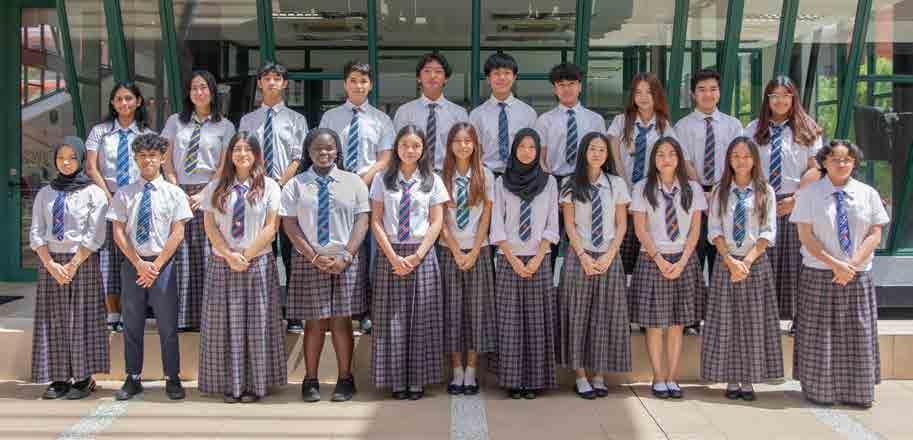
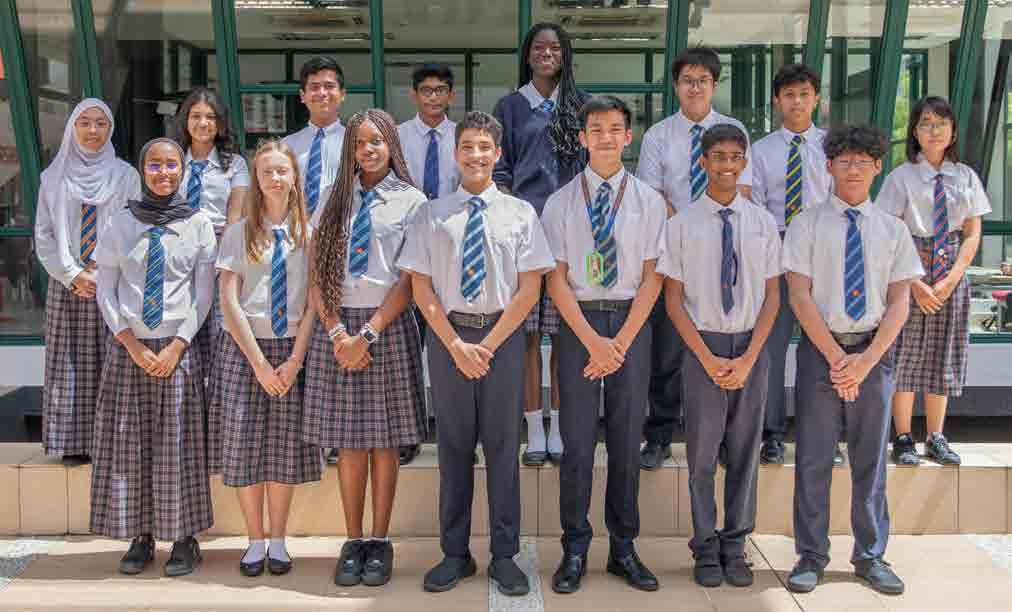

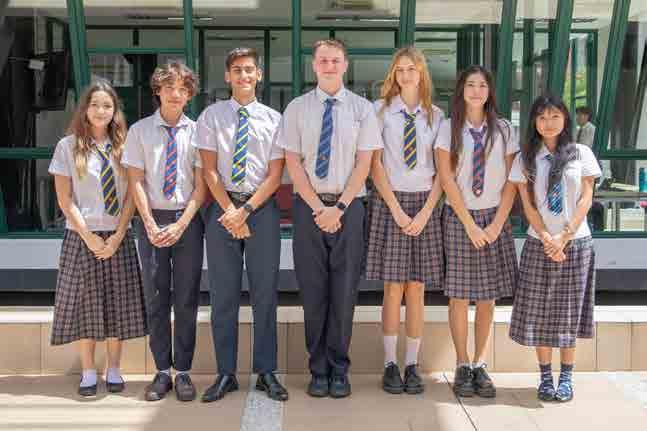
The role of the Senior School Council is to help create positive change within the Senior School community. To create, amend and improve the systems and structures the School has in place, to act as a voice for the students in the Senior School and lastly, to create a shared ethos and bond the four year levels together. The Council also plays a key part in helping students transitioning to the school and to make everyone feel part of the Senior School family.
The Senior School Council comprises students from Years 7-13. The Senior School Council meets with the Vice Principal - Head of Senior School once a week to discuss ways to improve the school. Then it is up to the Council. The Senior School Council is involved in many activities around the school, such as acting as ambassadors by conducting school tours for visiting students and guests, organising social opportunities for the year groups as well as leading whole school events such as Peace Week and International Day. The Head Students meet with the Principal once a month and speak with him about making real change within the whole School that hopefully benefit all students in the Senior School.
This is a student led initiative across the whole School. Polio Points are earned by following the Student Aims both in and out of lessons: Communication, Engagement, Resilience, Thinking, Leadership and Integration. A set of 6 polio points (one per school aim) is then used to purchase a polio vaccine through UNICEF to help in the effort to contribute to the worldwide eradication of the disease.
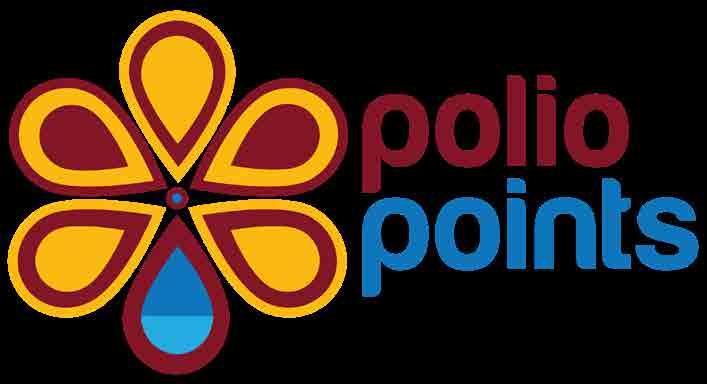
As a School, we want to encourage our students to do well as well as think of others. Polio Points empowers our students to make a difference to the lives of some of the most vulnerable communities in the world. Although Polio Points is an external organisation (http://teaspoonsofchange. org/) the students at JIS have worked to adapt the idea to fit the school aims and what they think will benefit the students as a system of rewards. By this Scheme, our students improve the lives of other children around the world.

In addition to the Polio Points scheme, the school also supports other charities, such as the Borneo Project and Penan Support group, to name a few. Student-led activities are organised throughout the academic year and are integrated with the key learning objectives in our curriculum. We take pride in the JIS community for its unwavering support of local charities and less fortunate communities.
An integral part of the education in the School is the range of field trips and excursions which students experience. These excursions broaden a student’s understanding of work that is being covered in class in a practical and enjoyable way. We have worked hard to develop excellent opportunities within Brunei to ensure all our students can experience a truly holistic educational experience. Year 7 to Year 9 - Residential Trips (1 night) e.g. Temburong Years 10 to 13 - a range of trips linked to subjects and / or CCAs e.g. International Award (Duke of Edinburgh).
JIS has a well equipped Health Centre staffed by 3 registered nurses. As well as treating any child who has an accident or feels unwell during the school day, the Health Centre works with students and families who have long term health conditions or needs. The service links in with other pastoral care providers in the school providing a multidisciplinary approach to student well being.
It is important that the emergency contact information given to the school is current, as this ensures timely contact with home and allows for swift communication of all needs between home and the Health Centre. If you are out of the country please ensure that your child’s classroom teacher or house master is notified with an emergency contact. On admission or during your child’s time at JIS, the health centre should be notified or updated regarding any medical conditions (long or short term) so that adequate support can be provided while your child is on site. This information is treated confidentially and only shared to staff who have contact with the student.
Please let us know immediately if your child is unwell and inform us of any medical diagnosis that may result in the spread of an illness to other students or staff. If it is something that can be passed on to others, keep your child at home. If they are recovering from an illness and are not able to take part in Physical Education lessons, inform us by letter.
In the event of a minor accident or sickness, children are taken to the nurse in the Health Centre and given first aid and made comfortable until they are able to return to class. If an injury causes us concern or hospital treatment is required we first seek the advice of the nurse and then make every effort to contact a parent or the listed emergency contact as soon as possible. Where this is not possible we will make arrangements to accompany and transport children to hospital and seek further medical advice. If appropriate the services of an ambulance will be used.
No form of medication is allowed to be held by students on site in both the Junior and Senior schools. All medication required must be handed into the health centre and a consent form completed. These medications may be for long term conditions or for a short term treatment but must be given to the Health Centre Staff and not kept in students bags or lockers. Teaching and Administrative staff are not allowed to give out medication on school site - for school trips they undertake training and are able to administer when off site.
Students must use sun protection (and insect repellant) on exposed skin if they are outside for an extended time. School hats are worn outside and students are encouraged to make use of available shade. All classrooms have a supply of sunscreen for the children to use. All students must have a hat which they wear at break and lunchtimes. We operate a ‘No Hat, No Play’ policy for students wishing to play sports on the school fields.
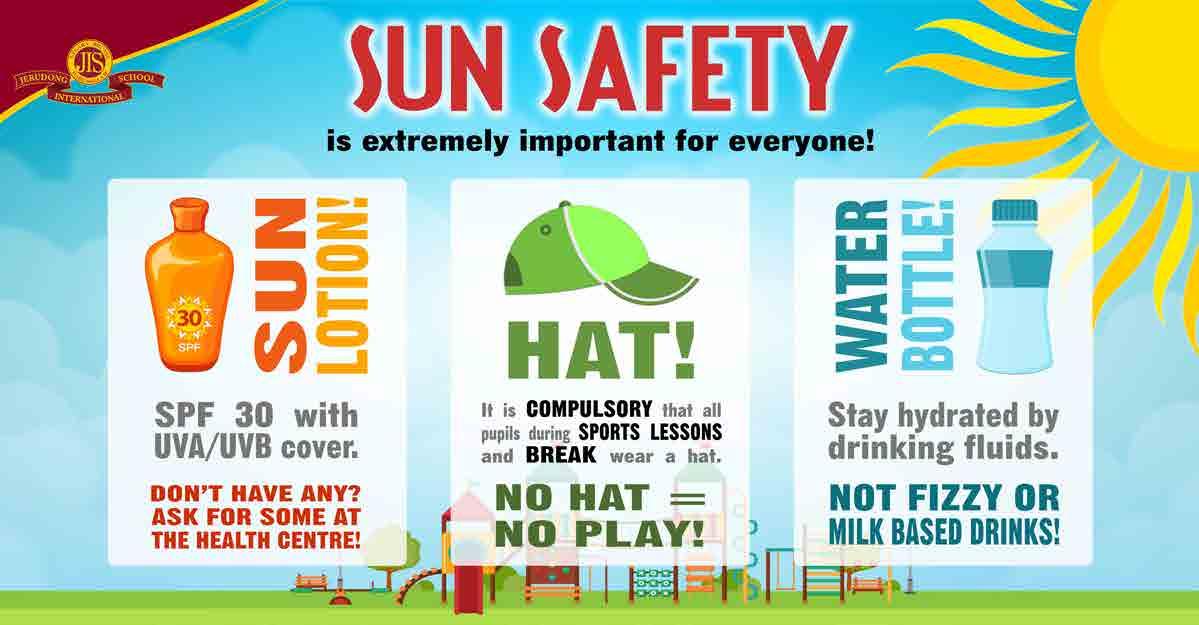

Jerudong International School (JIS) believes that a clear uniform policy plays a valuable role in contributing to the school ethos. We expect all who attend JIS to have a high standard of appearance whilst wearing school uniform whether inside or outside of school.
The purpose of this policy is to provide clear guidance to students, teachers, parents and other stakeholders about the expectations of the school with regard to uniform and appearance and the strategies used to maintain a high standard at all times.
At any time that students wear school uniform they are representing the school and must wear the appropriate uniform in the appropriate manner. It is important that the school uniform is worn correctly. The uniform is available for purchase from the stationery and uniform shop.
• The Principal and School Academic Leadership Team are responsible for ensuring the policy is followed.
• House Masters, House Mistresses, Tutors and class teachers (Junior school) are responsible for checking uniform daily.
• School staff, including teaching and support staff, are responsible for ensuring that the policy and procedures are followed and consistently and fairly applied.
• Parents and carers are responsible for ensuring that their son or daughter wears the correct uniform inside and outside of school.
• Students are expected to take full responsibility for their own appearance and will be made fully aware of the school policy, procedures and expectations.
The Assistant Head of School will judge if a student is inappropriately presented and may, after liaising with the relevant Vice Principal, send a student home to return properly dressed.
Parents should check with the Housemaster or Housemistress if they have any doubt about the suitability of items of clothing they intend to buy for students to wear in school.
Shoes that are all
should be worn - stitching, lacing, edging around the base of the shoe. No coloured flashes, labels or logos. Plain white / black socks only.
Long Navy Blue Tailored Trousers
School Tie
Trousers need to be loosely hanging. Tight fitted trousers are not allowed. Plain blue / brown / black belt only. Long Black trousers only for Year 12 & 13.
Years 7-11: House Tie Years 12-13: Maroon Tie
• Underwear should not be visible.
JIS white and maroon dri-fit shirt (long / short sleeves).
JIS maroon dri-fit shorts / track pants. Appropriate footwear for the sports activity e.g. trainers, football boots etc.
JIS Jumper / Cardigan Only official JIS jumpers / cardigans are allowed to be worn in and around school.
• Hair should be neat and clean. Hair should not touch the shoulders.
• Extreme styles or garishly coloured hair are not allowed.
• No jewellery or makeup should be worn.
• Tattoos are forbidden.
• Earrings / ear studs are forbidden (unless for religious or cultural reasons).
• No facial hair may be grown unless it is for religious reasons, whereby written permission should be obtained from the Head of School.
• Coloured contacts are acceptable so long as they are of a natural colour (green, blue, brown etc.). Contacts of unnatural colours e.g. red or purple are not allowed.
• Headphones should not be worn around school.

White Collar Button Shirt Short Sleeves / Long Sleeves. Black Shoes
JIS Tartan Skirt
Midi Length (just below the knees) OR
Full Length (by the ankles)
Religious Headscarves Plain white / black only.
School Tie
Years 7-11: House Tie
Years 12-13: Maroon Tie
• Underwear should not be visible.
PE Kit
Shoes that are all black should be worn - stitching, lacing, edging around the base of the shoe. No coloured flashes, labels or logos. Plain white / black socks only.
JIS white and maroon dri-fit shirt (long / short sleeves).
JIS maroon dri-fit shorts / track pants. Appropriate footwear for the sports activity e.g. trainers, football boots etc.
JIS Jumper / Cardigan Only official JIS jumpers / cardigans are allowed to be worn in and around school.
• Hair colour must be natural and style and must be appropriate (at discretion of the school) for school (no unnatural highlights or multi tone colouring).
• Hair should not obscure the eyes and hair that falls below the shoulder should, if requested, be tied back whilst in school.
• Girls in Years 7-11 should not wear make up in school. Sixth Form girls may wear discreet foundation.
• Girls in Years 7-11 should not wear nail varnish in school. Sixth Form girls may wear subtle/natural nail varnish. False nails should not be worn.
PE Kit
• Girls may wear ONE flat signet ring, ONE small stud in the lobe of each ear, ONE bangle & ONE necklace (except during PE and some practical lessons).
• Tattoos are forbidden.
• For health and safety reasons, other forms of body piercing jewellery are not allowed (discreet nose studs are allowed for cultural and religious reasons).
• Coloured contacts are acceptable so long as they are of a natural colour (green, blue, brown etc.). Contacts of unnatural colours e.g. red or purple are not allowed.
• Headphones should not be worn around school.
PE kit can only be worn to school if students have PE Period 1. On Friday no student should be coming to school in PE kit unless permission has been given by the HsM. Students should (on most occasions) change out of PE kit at the end of PE lessons.
Clothes should be worn that are appropriate for a school environment. Shoulders and midriffs should be covered and shorts or skirts should be of an appropriate length. Logos on clothes should be non-offensive.
The health, safety and well-being of every child at Jerudong International School is our prime concern. We listen to our students and take seriously what they tell us. Our aim is that children will enjoy their time as students in this school. We also want to work in partnership with our parents to help each child to achieve their full potential and make a positive contribution. The school has a Child Protection Policy in line with this for the safety of all. This Child Protection Policy is available to parents on our Firefly Parent Portal. If you are at all worried about the welfare, health or safety of a child please speak to the school counsellors or your child’s Housemistress / Housemaster or Head of Senior School.
JIS is committed to providing the whole school community with a modern, healthy menu and dining experience. We are constantly working on ways we can improve the food offered in our school canteens. Our aims are always to focus on freshly prepared food with great variety that is both nutritious, delicious and attractive. Students in Years 7 - 11 eat their snacks and lunch at the ‘Borneo Pasar’ Canteen. Students in Years 12 & 13 eat their snacks and lunch at the ‘Hornbill’ Canteen. We have two halal certified caterers - Serikandi and Grazestar who both operate in these canteens. They offer a varied and extensive range of items served from different kiosks. They can cater for any special diets requested and daily vegan / gluten-free and vegetarian hot meals are available. The variety each day includes a hot food station (Western and Asian choices), Salad bar, Pasta station, Sushi and Rice Boxes, ‘Make your own Sandwich’, Live Grilling, Fresh Fruit Slices and Juices and Grilled Cheese Sandwiches. All food purchases are offered with a free salad pot.
Parents can view the menus on the Firefly parent portal and meals can be pre-ordered. Students purchase food using credit on their Campus Card account. For Boarders, a daily credit value is automatically added. For day students, parents can add credit by paying cash to Accounts or paying online. Parents can also set a daily limit for their child. All menu items are available for pre-ordering via the online Campus Card account.


Daily menus are available via Firefly. The Firefly food pages also have monthly updates of new items added to the menus. There is an active food committee open to all Senior School students for food tasting and feedback sessions are held during lunch times each term.
The School is committed to recycling / reusing and reducing waste and so we encourage parents to provide their children with a container to collect their lunch. Students will also bring their own water bottles and fill them using the water fountains. Water jugs and beakers are also available in the Borneo Pasar Canteen and Hornbill Canteen.
All parents are issued with a security ID Pass and also a car pass which allows them to access the school campus. Parents are required to wear their Parent Pass when on the school campus.
Children in Years 7-11 will visit the School Library as part of their school curriculum. However, JIS parents are welcome to register as Community Borrowers. This will allow parents to borrow books for their own personal enjoyment or/and to borrow additional books for their children. Parents are welcome to visit the library 7.30am - 8am each morning (Monday - Friday) and 3pm - 4pm (Monday - Thursday).
Ugama is the study of Islam. It is taught in the Malay language (Bahasa Melayu) and is compulsory for all Bruneian Muslim students in Years 2 - 8. Classes commence at 3.00pm on Monday to Thursday and 2.45pm on Fridays. Please contact ugama@jis.edu.bn for more information.
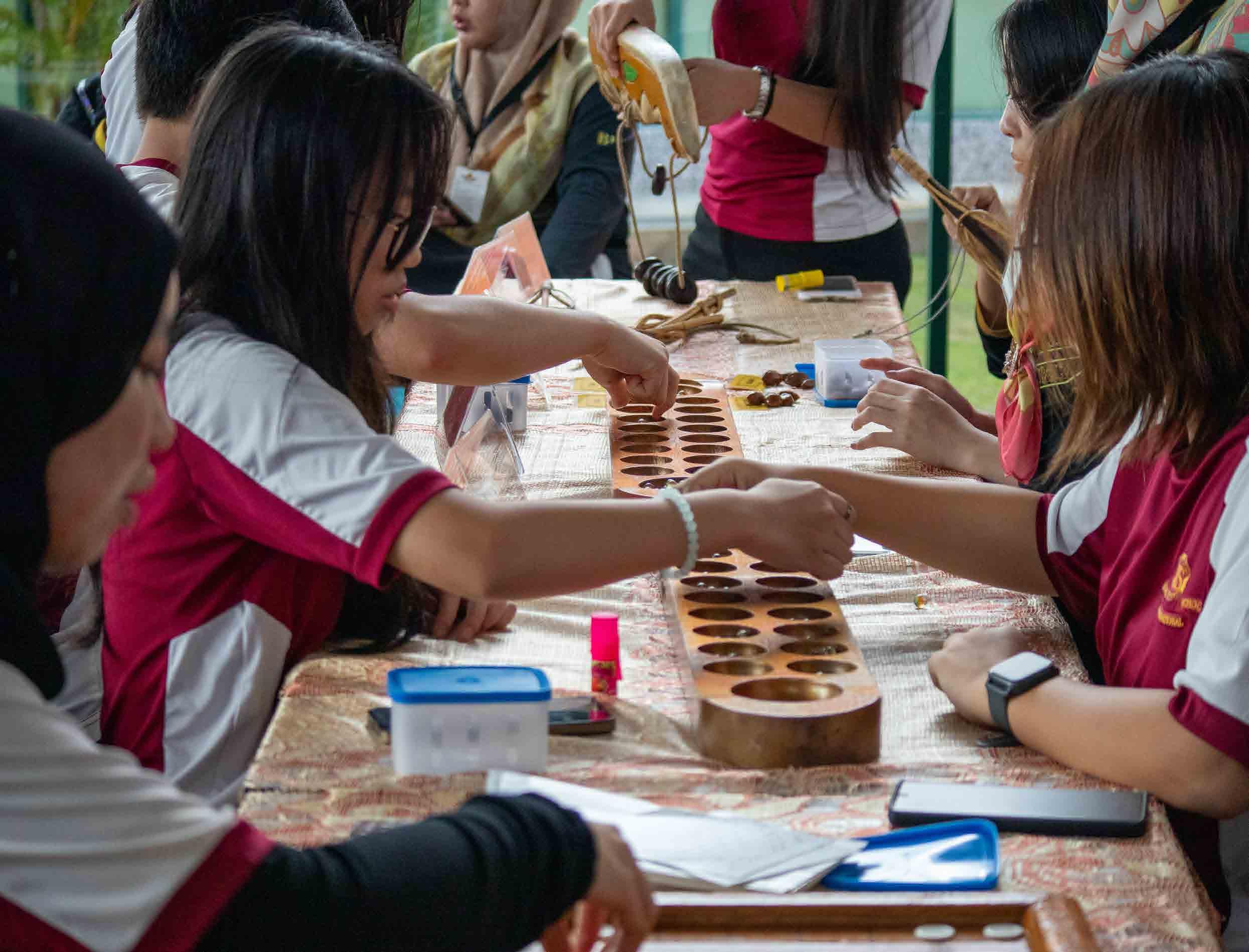

The pastoral system at Jerudong International School (JIS) is unique and focuses solely on providing the most comprehensive support network for our students as possible. FridayOne is a time for students to integrate, participate in house events and seize opportunities for leadership and personal challenge. Students are defined not only by the content they learn at JIS but also the relationships they build and it is essential we guarantee time for these bonds to develop. Every Friday morning the students have an hour of the week that is set aside as pastoral time and falls under three central strands: House time, Tutor time and Lifeskills.
House time gives the Housemasters/mistresses (HsMs) of our 16 Houses the opportunity to create shared experiences for the students in their care. These activities strengthen the strong feeling of community at JIS of which we are so proud and allow students to get to know one another and make friends across all year groups. The HsMs create a programme for the students to learn the key house values and grow as individuals.
Tutor time allows focused time for tutors and students to meet to discuss academic progress and plan strategic interventions. The tutor is the first step towards solving the small issues that can impede a student’s academic progress. A strong bond within a tutor group offers one of the most important layers of pastoral support here at JIS.
Lastly, Lifeskills at JIS aims to equip students with the knowledge, selfunderstanding and social, emotional and intellectual skills necessary to live a healthy, safe and well-balanced life and to achieve their full potential both at JIS and in later years. A well designed Lifeskills
programme can be a powerful tool in helping students overcome problems and the JIS Lifeskills programme draws on established practices, but has been tailored to reflect the exact demands of the students living in a Bruneian and international school context. It aims to give the students an awareness of the need for balance in life and the impact that neglect of one area, such as physical or emotional health, can have on their performance in other areas, including academic success.
Whilst it is considered important to make students aware of the risks associated with harmful practices, the Lifeskills curriculum at JIS takes a positive, preventative approach, aimed at empowering students with the self-awareness and emotional resilience required to confront the challenges of life. Lifeskills is organised around three strands that have been chosen through consultation with the HsMs and the students themselves. They cover the three key focuses of physical health, emotional health and intellectual health. In the Middle Years (Year 7-9) these strands are labelled Friendships, Healthy living and Emotional Resilience. In the Upper Years (Years 10-13) the same values are continued but delivered through Relationships, Global Citizenship and Mental Health. In Year 12 we have embedded the Higher Education programme into FridayOne. In Year 13 the students embark upon a course entirely focused on their departure from JIS and, for many of them, a move to university in a different country other than their own. With this in mind the students go through a series of sessions focused on preparing for Independent Living.
At JIS we are committed to educating the whole child and consider FridayOne to be the most important hour of the week.
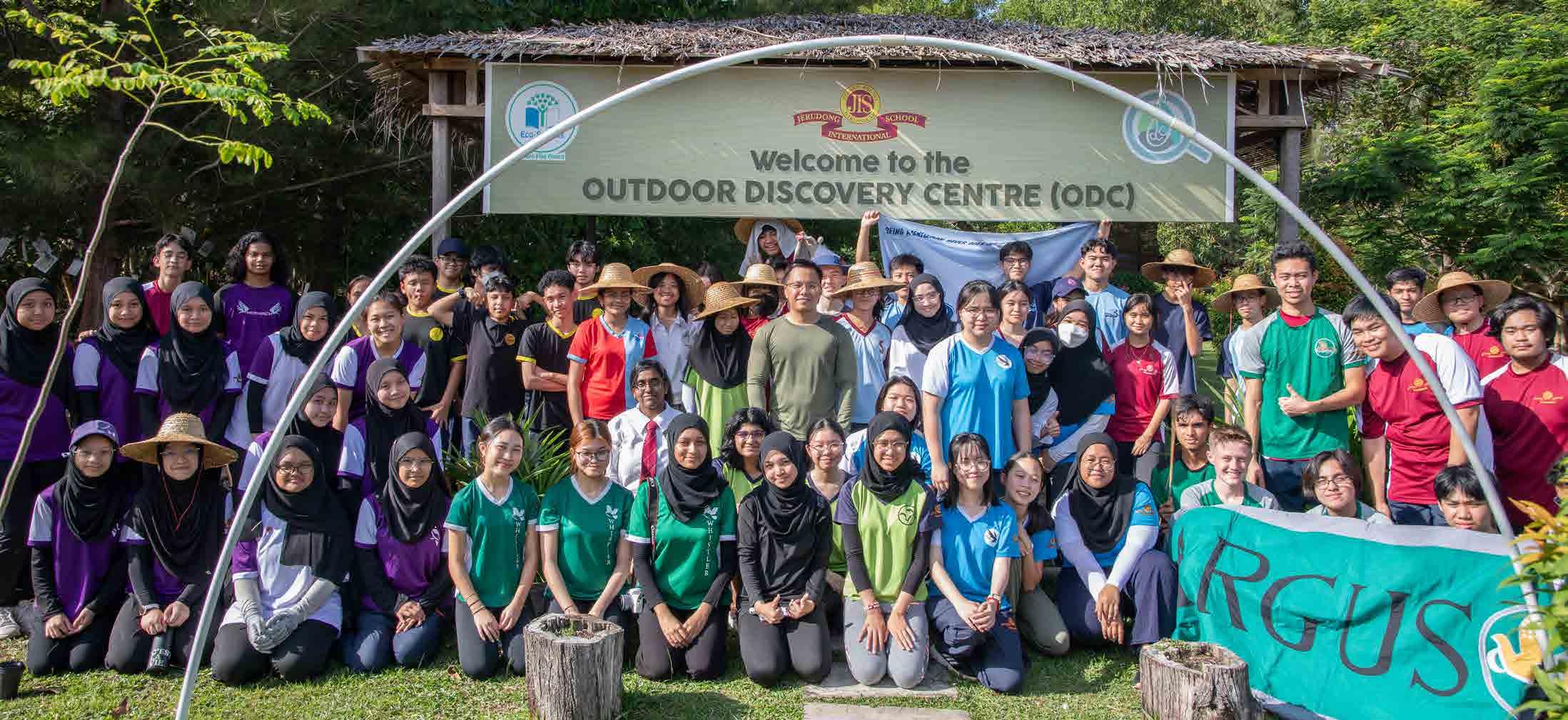

Potential career pathways and university or other post secondary education options are due careful consideration when making decisions about subject selection for both I/ GCSE as well as A Level, BTEC or IB programmes.
To assist students in making informed choices students have the opportunity during PSHE in Year 9 to complete an online interest questionnaire from the Morrisby Organisation in the UK (https://morrisby.com/morrisby-careers). This questionnaire helps to promote self understanding and relates interests and attitudes to potential careers, which can provide a starting point for ongoing research and discussion. Students keep their Fast Tomato account throughout their time in the Upper Years and can access it from home or anywhere with an internet connection.
This is extended into Year 11 with the opportunity to take the Morrisby Profile, a renowned and accurate psychometric test used by the careers services in over 400 leading schools in the United Kingdom. The test identifies potential careers, suitable A Level/IBDP subjects and degree programmes by analysing students’ abilities, personality and interests.
Throughout the year, the Careers Counselling service organises visiting speakers and careers trips covering a range of careers.
To assist students with their future choices, opportunities for work attachments are offered across a range of careers. This excellent scheme gives students first-hand experience of their prospective career and opportunities for networking with professionals.
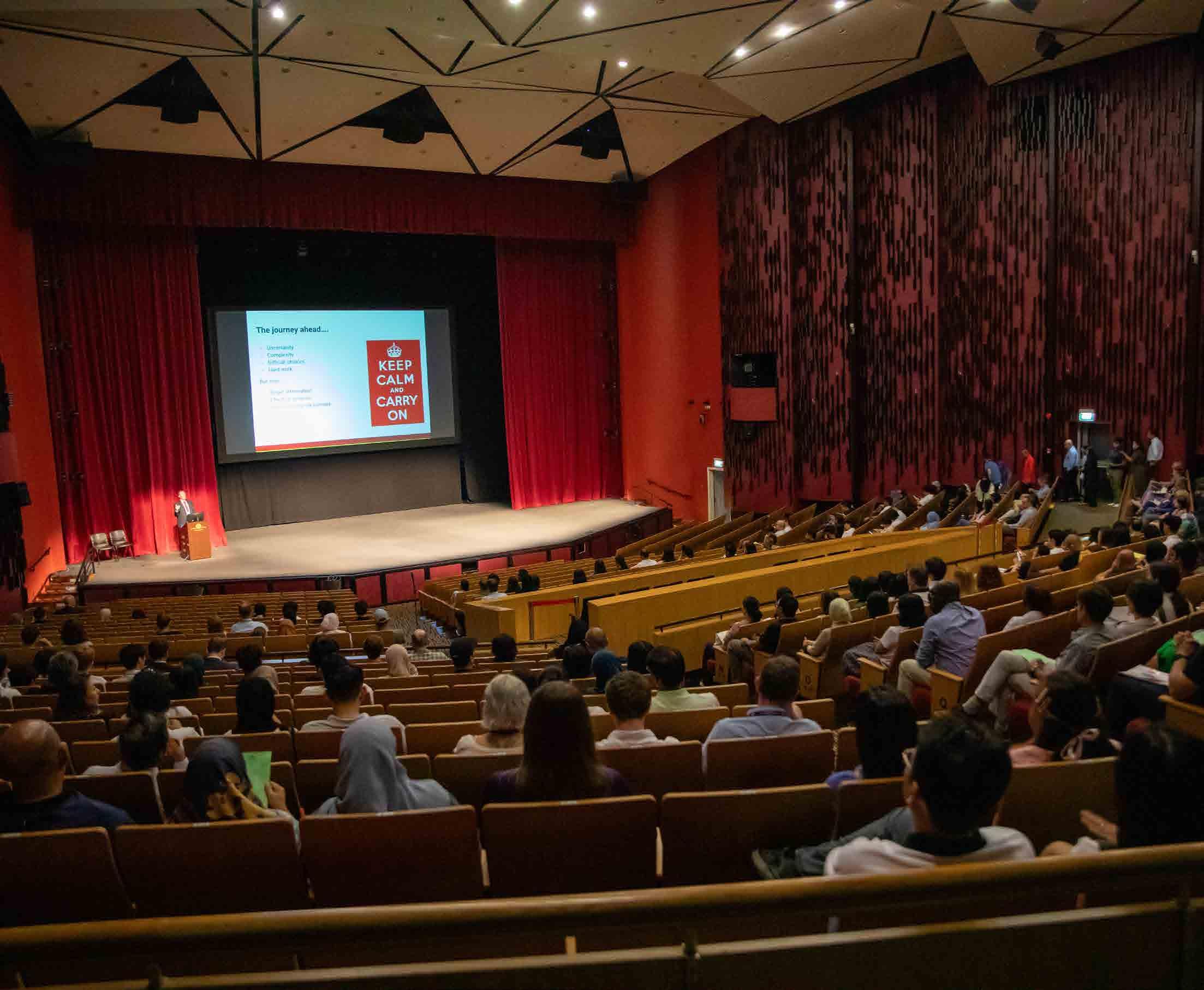

The I/GCSE years offer new challenges for students ages 14-16 years at JIS. The curriculum is more academically demanding than in previous years and assessment in the form of coursework occurs throughout the two year period. Students have to plan their time more effectively and show greater initiative in their studies. We are very keen that every student at JIS fulfills his or her potential. In academic terms, this means that each student should gain the best grades of which they are capable in the different sets of external examinations they sit.
GCSE or the General Certificate of Secondary Education (IGCSE is the International version) is the external examination which students in England and Wales take at the end of Year 11, usually when they are sixteen years old. I/GCSEs are important examinations. Not only do the results give an indication of a student’s attainment in the subjects they have taken in Years 10 and 11, they also give a broad sense of what may lie ahead in terms of the pathways they take in their education. Naturally, students are encouraged to study only the subjects in which they have ability or do what they are passionate about. Entry to Year 12 is selective and students are expected to achieve at least a grade B or Level 6 at I/GCSE in order to continue the study of a particular subject in Year 12.
In addition to the examinations, students are assessed in some subjects by coursework and controlled assessments, the nature of which differs according to the subject. Coursework requires planning, research, initiative and patience. It is a very valuable learning experience, in addition to being an important form of assessment. Redrafting, proofreading and editing coursework assignments helps to make students more critically aware of their own weaknesses and also teaches them how to improve the quality and depth of their work.
It is essential that students maintain as broad an education as they can, for as long as they can. All academic subjects in universities, and virtually all employers, seek students and employees with a wide education. I/GCSEs provide a sound base on which to build on in later study. In Year 12 and Year 13, at A Level, BTEC and International Baccalaureate Diploma Level, students will have the opportunity to specialise further and study subjects in greater depth.
The I/GCSE years are challenging but they are also an intellectually stimulating time. Students truly begin to engage with the complexities of different disciplines and coursework allows them to pursue the branches of knowledge that interests them most. There are greater opportunities for independent learning and initiative is essential to doing well. The breadth and depth of I/GCSEs are an ideal foundation for more specialised study.
In general, I/GCSE examinations are taken at the end of Year 11. The General Certificate of Secondary Education is administered by examination boards based in the UK. The examination boards EDEXCEL, AQA and CIE all offer I/GCSE courses which are broadly considered to be the equivalent of one another.
The IGCSE, or International General Certificate of Secondary Education, is designed for students studying outside of England or Wales. The focus is less eurocentric than the GCSE. In JIS, most faculties have chosen to offer the IGCSE curriculum but some GCSEs are also on offer. Universities make no distinction between the GCSE or IGCSE qualifications. Specific details for each course, such as examination board and syllabus number, are listed in this handbook. There is also a broad description of the curriculum that will be covered during the I/GCSE course. For further information please refer to the Ofqual website at: www.ofqual.gov.uk.
Detailed syllabus information can be found on the following websites: AQA (www.aqa.org.uk)
(www.edexcel.org.uk)
(www.cie.org.uk)

The core subjects of English, Mathematics, Biology, Chemistry and Physics as well as non examined Friday One lessons and Physical Education (PE) are compulsory for all students in Years 10 and 11. Every student takes as their core I/GCSE course, examinations in:
• English Language or English as a Second Language.
• Mathematics (and Further Pure Mathematics for selected Mathematicians based on a range of seclection criteria)
• Double Science (with an option of Triple Science).
• A Modern Foreign Language.
Many first language English students also study for an IGCSE in English Literature as part of their timetabled English classes. In almost every case, a student is expected to take a Modern Foreign Language (MFL), something which is very useful in today’s global world. Students choose their modern foreign language from First Language Chinese (Mandarin), Foreign Language Chinese (Mandarin), Foreign Language French, Foreign Language Spanish, and Foreign Language Malay. Students who have studied two languages in Year 9 and have demonstrated a clear aptitude for languages, may continue their study of both languages at I/GCSE level. First Language Malay speakers follow the Bahasa Melayu O’Level syllabus which is in keeping with government schools in Brunei.
Students complement the core curriculum with three optional subjects chosen from:
• Art and Design
• Business Studies
• Computer Science
• Design and Technology: Food and Nutrition
• Design and Technology: Product Design / Resistant Materials
All IGCSE students study these core subjects:
• Design and Technology: Textile Design
• Drama
• Economics
• Geography
• History
• Media Studies
• Music
• Physical Education
• Triple Science (additional Biology, Chemistry, Physics)
In addition, students choose THREE optional subjects: CORE
• English Language
• English Literature
• English as a Second Language
• Mathematics (possibly Further Mathematics)
• Double Science (with an option of Triple Science)
• A Language (Bahasa, Chinese, French or Spanish)
• Art and Design
• Business Studies
• Computing
• Design and Technology: Food and Nutrition
• Design and Technology: Product Design
• Design and Technology: Textile Design
• Drama
• Economics
• Geography
• History
• Media Studies
• Music
• Physical Education
• Triple Science
• A Language (French, Spanish or Chinese)
Business Studies, Economics and Media Studies are new subjects to Year 10 & 11. For other subjects, students may also be able to take subjects which they did not study in previous years. If a student chooses to do this, they must be very committed to the subject as they will certainly have to catch up curriculum knowledge and acquire skills that other students already possess.
Students should not take subjects in which they have little or no interest as it is highly unlikely that they will do well in these and such a choice usually means that the subject takes up a disproportionate amount of a student’s time. When in doubt, parents and students should seek advice from their son or daughter’s Housemaster or Housemistress.
Every student’s work is marked and reported using grades. A grade describes the standard of work or the degree of attainment in a subject. In 2017 the UK government replaced A*-G grading with a 9-1 grading system. With 9 Levels of performance rather than 8, there is a greater differentiation of the most able at the top end of the grading scale.
Some qualifications (linked to the CIE Examination Board) will still award A*-G grades at the end of the course. However, due to the changes in the grading system used for most of the qualifications on offer at JIS we have replaced the A*-G system with the 9-1 system for our Year 10 and 11 students.

The conversion chart below should allow you to see how their numerical grade converts to a A*-G grade.
After sitting the final IGCSE/GCSE examinations at the end of Year 11 students will receive grades in the following format. Subjects following an A*- G structure Subjects following a Level 9-1 structure
• Modern Foreign Languages
• Drama
• Design & Technology: Food Preparation and Nutrition
• Design & Technology: Product Design
• Physical Education
• English Literature & Language
• English as a Second Language
• Biology
• Chemistry
• Mathematics
• Further Mathematics
• Physics
• Art & Design
Note: Bahasa Melayu (O-Level) will still award grades: A1 - E8
• Business Studies
• Computer Science
• Design & Technology: Textile Design
• Economics
• Geography
• History
• Media Studies
• Music
To study a subject at A Level or the IB, students will automatically qualify if they achieve a Level 6. If they achieve a Level 5 this will be at the discretion of the Head of Faculty for that individual subject.
Most universities typically require a C (Level 4) or better in English and Mathematics, regardless of a student’s performance in their A Level courses. Many students who fail to achieve a C grade (Level 4) in English and Mathematics will have the opportunity to retake their l/GCSEs in those subjects at a later date.
Students receive regular reports. Parents are expected to attend meetings with their son or daughter; teachers and/or tutor to discuss their progress. At the end of Year 10, students sit internal exams which are set and marked by individual faculties. The results of the exams are sent to parents and also contribute to the final grade the student receives on their report. In January of Year 11, students sit internal exams which are closely based on I/GCSE papers. The final I/GCSE exams occur in May and June, and the scripts are sent to the UK for external marking. Students receive the results of these in August, shortly before they enter Year 12. In addition to all the exams, students complete a variety of coursework tasks throughout the I/GCSE programme all of which contribute to the final grade they receive.
Homework is set in order to:
• Reinforce and consolidate work covered in the lesson.
• Encourage independent, reflective and collaborative learning.
• Develop knowledge and understanding.
• Prepare material for future work.
• Complete Coursework and Internal Assessments. The assignments are to be manageable and varied in task, outcome or length.
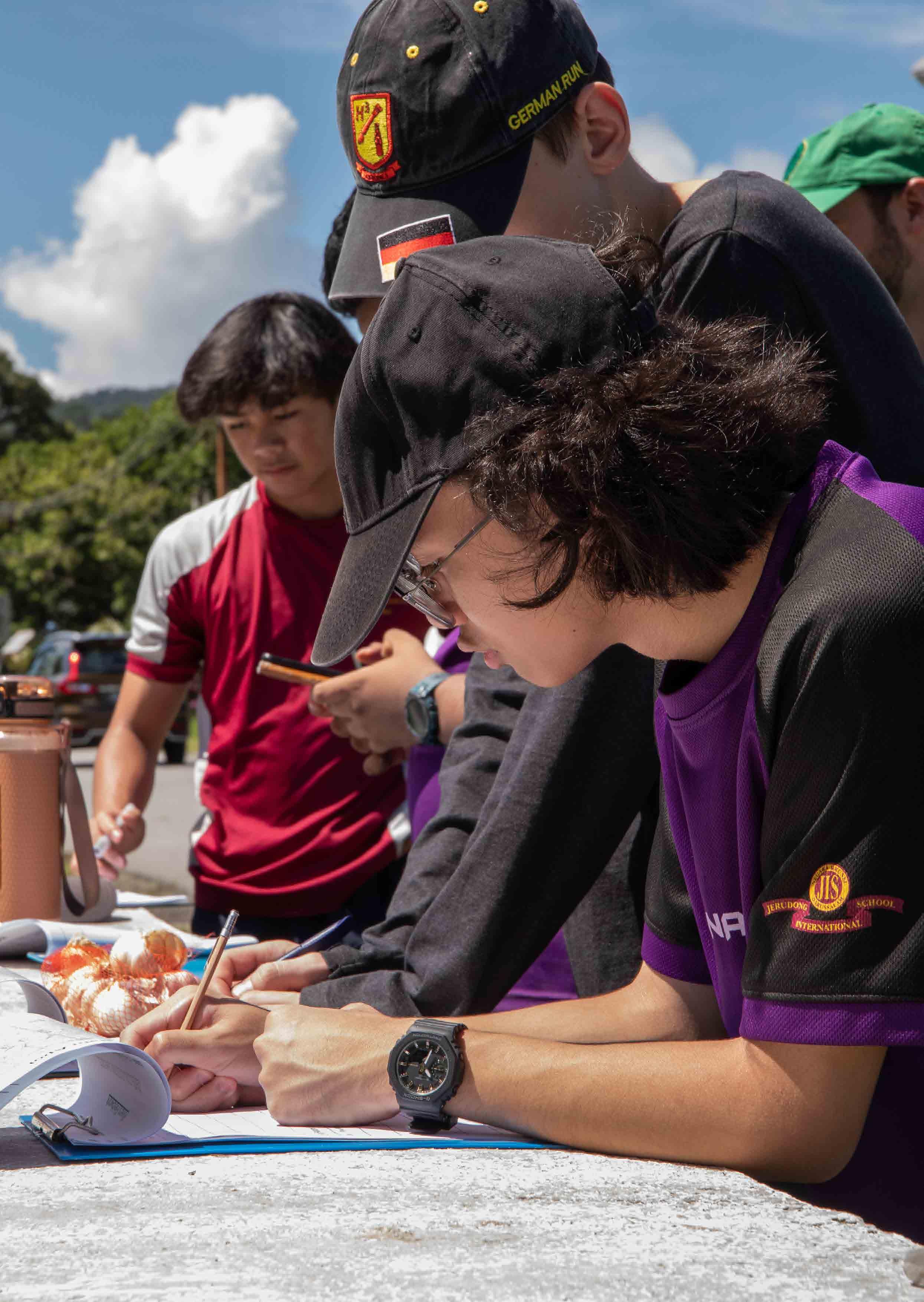

Jerudong International School (JIS) is proud to share that their Year 11 students who took the International GCSE (IGCSE) examinations in June 2024 have achieved some of the best results in the school’s history.
A remarkable 58% of all grades awarded were either an A* or A grade (Level 9-7) and 96% of students received grades ranging from A* to C (Levels 9-4) overall.
Dhanushan Chinniah achieved an exceptional 12 A*/A grades across all his subjects, the highest in the year. This exceptional performance will provide him with a solid foundation as he enters Sixth Form.
Additionally, Jovan Tang achieved an impressive 11 A*/A grades. A further five students achieved 10 A*/A grades - Sai Ananya, Isaac Chang, Isla Hallam, Mintong Li and Chloe Yung.
Ten students achieved 9 A*/A grades - Soubhik Bandyopadhyay, Rahmah Isa, Dk Jaydenne Sofie Pg Jaysen, Shin Khant Lin, Sara Ng, Jaey On, Bertie Scott, Toby Stevens, Lynn Tan and Claudie Teo
Twelve students achieved 8 A*/A grades - Her Royal Highness
Princess Ameerah Wardatul Bolkiah, Cherin Chikh-Ali, Imane Er-Rrahmani, Ayden Zahari bin Abdul Hakeem, Marissa Koh, Nigel Lim, Syasya Ilyana Kiasatina Mohd Adnan, Spandita Nayak, Camilia Ong, Ak Abdul Hadi Raiyan bin Pg Dato Paduka Osman, Duncan Schuller and Grace Taylor.
Furthermore, 15 students achieved 7 A*/A grades - Dominic Christian, Abdul Mateen El-Waliy bin Fakhruddin, Amber Goh, Md Ilyas bin Hj Ilham Rohaidi, Aleya Zafirah Hj Ismadi, Clare Lee, Ashley Lim, Maryam Safwa binti Mazini, Matthew McCambridge, Alisha Dhaniyah Md Azmi Yusran, Md Al Hakeem bin Hj Md Sahraini, Muhd Danish Luqman Saidin Hidayat, Ian Sia, Travis Tan and Mihikaa Vijay Shankar.
Executive Principal Mr Nicholas Sheehan commented: “We are so immensely proud of our Year 11 students for their incredible IGCSE results. These achievements reflect their dedication, hard work and the commitment of our outstanding teachers. We are excited to see them excel as they continue their educational journey. Congratulations to all our students on their remarkable success.” - Press Release (September 2024)


EXAMINATION BOARD: EDEXCEL SPECIFICATION NUMBER: 4EA1 (SPECIFICATION A)
The Edexcel IGCSE in English Language (Specification A) is designed as a two-year course. The specification includes a wide range of reading and writing, covering texts from a wide range of cultural contexts. This is a single tier entry course; however, for most students, it runs alongside the Edexcel English Literature course. During the course, students will develop the capacity to participate effectively in speaking and listening activities both in groups and presenting individually. They will develop the ability to read, understand and respond to a variety of texts both fiction and non-fiction, and to recognise the ways in which writers create meaning. In addition, they will develop their ability to construct and convey meaning accurately in written language, matching style to audience and purpose to engage the reader.
Examination (Paper One): Accounts for 60% of the total English Language (Specification A) qualification and assesses Reading (30%) and Writing (30%). The exam consists of two sections.
• Section A - Reading:
- The reading section contains questions on an unprepared non-fiction reading passage and an already-seen passage from an Edexcel anthology.
- Questions test factual comprehension, inference and an understanding of how writers use language, as well as analysis and evaluation of how writers use linguistic and structural devices to achieve effects.
- The final question in this section is a comparative question. Candidates will be asked to compare the features of the unseen text with the features of the text from the anthology.
• Section B - Writing:
- The writing contains one compulsory transactional writing question with a choice of two options.
Examination (Paper Two): accounts for 40% of the total English Language (Specification A) qualification and assesses Reading (20%) and Writing (20%). The exam consists of two sections and the duration is 1 hour 30 minutes.
• Section A - Reading:
- The reading element of the exam is an essay question on a poetry ot prose text from an Edexcel anthology. The question is worth 30 marks.
• Section B - Writing:
- A piece of personal and imaginative writing from a choice of three. The question is worth 30 marks.
• Students will undertake a series of speaking and listening assessments across the two-year period. Some of this is delivered in class and some in a formal examination situation during a speaking and listening assessment week. All formal assessments are video recorded and marked internally. A sample of these will be sent to Edexcel for moderation.
• The speaking and listening assessments do not count towards the grade for the IGCSE. Instead, a separate certificate will be awarded. This will either be a ‘Pass’, ‘Merit’ or ‘Distinction’.
To take Edexcel English Language (Specification A) instead of English as a Second Language requires sufficient fluency in spoken and written English. If your child has been studying English as a second language in Middle Years, their teacher will let them know if they are ready to move to this course for their IGCSEs.

What will lead to success in this course?
Reading for pleasure will definitely help. A willingness to talk in class and offer ideas even if your child is not sure will really speed up their progress. You can support them at home by encouraging your family to access the news from multiple sources and then discussing how the stories are presented. It is helpful to think about how the intended audience, the writer’s purpose and the specific text type affect the message. Practising ‘real life’ writing will also help, such as applications for student positions or thank you letters.
Can students take their texts into the exam?
In each exam, students will be given a clean copy of each of the the respective Edexcel anthologies.
Will my child be assessed on spelling and punctuation?
Yes, students are assessed directly on spelling and grammar. Having a confident understanding of spelling and grammar will also help your child to analyse texts. There are many resources available for improving the mechanics of English, such as Vocabulary.com for varying word choice and practising spelling. English lessons include reminders about the mechanics, such as clauses and commas.
Is it possible to revise for English
Yes! A good start is to know the texts well; usually, this means reading them more than once! Students can also use free recall and mindmapping techniques to remember important information and connect ideas together. It is especially important to compare and contrast the anthology texts with other texts they encounter, such as news articles. For Section B of the exams, students can practise the different types of writing, such as speech writing or imaginative writing. Other revision strategies include creating and revising a glossary of analytical terms, practising unpacking and analysing important quotations, completing timed practice questions, creating plot graphs, and reading widely.
Edexcel English Language is a prerequisite for all A-Levels and the IB. All IB students will continue to study English, and Higher Level English at IB remains a popular choice for students.
EXAMINATION BOARD: EDEXCEL SPECIFICATION NUMBER: 4ET0
The Edexcel IGCSE in English Literature is designed as a two-year course and is a core subject for most students. This is a single-tier entry course however, for most students, it runs alongside the Edexcel English Language course. We teach Edexcel English Literature and Edexcel English Language combined in lessons. In English, we help students to enjoy reading; the set texts are engaging and popular, covering poetry, prose and drama. These texts complement the poetry and short stories featured in the Language course. The main difference between the English courses is that Literature covers a broader range of literature and emphasises the study of more literary techniques. During the course, students will develop the ability to read and respond to a wide range of literary texts from around the world. In addition, they will develop an appreciation of the ways in which writers use literary effects and develop the skills needed for the study of literature in different forms.
Examination (Paper One): 60% of the total English Literature qualification. Assesses three sections; Unseen Poetry (13%), a comparison of Anthology Poetry (20%) and Modern Prose (27%). Duration is 2 hours.
• Section A - Unseen Poetry: There is one 20-mark essay question exploring the meaning and effects created in an unseen poem. The poem will be reproduced in the question paper.
• Section B - Anthology Poetry: This section has one 30-mark essay question from a choice of two, comparing two poems from the anthology. The first option specifies two poems from the anthology; the second option specifies only one, and students are free to choose their second poem based on the question topic.
• Section C - Modern Prose: This section has one 40-mark essay question from a choice of two.

Examination (Paper Two): 40% of the total English Literature qualification. Assesses two sections; Modern Drama (20%) and Literary Heritage (20%). Duration is 1 hour and 30 minutes.
• Section A: Modern Drama
- Students write an essay, from a choice of two questions, on a modern play. Students will demonstrate their critical reading skills as well as their ability to produce clear and coherent writing. This piece of question is worth 30 marks. Clean copies of the play are provided in the exam.
• Section B: Literary Heritage
- As above, except students write an essay on a Literary Heritage text from a choice of two questions. In this essay students must also demonstrate appreciation of contextual influences on the text. This question is worth 30 marks. Clean copies of the text are provided in the exam.
Often students of English Literature pick out two main benefits of the subject: the enjoyment of reading and transferable skills. Educational research shows that reading for pleasure is one of the most important aspects for success at school, but students sometimes neglect it or have not yet found something they truly enjoy reading. English Literature helps to show students a wider range of excellent writing and teaches skills to help them to enjoy a variety of texts. As for transferable skills, Literature helps students to understand nuance, consider texts critically, and to communicate effectively, whether in discussion or in writing. Whether they pursue careers in medicine or law, engineering or marketing, students need these three skills to thrive. Additionally, learning to ‘think aloud’ in discussions and participate in debates are important metacognitive practices that enrich thinking and boost confidence across subjects. Many students find their English lessons a key place for exploration in thinking.
Most students who take Edexcel English Language (Specification A) will also take the Literature course. While some students are nervous about Literature, especially if they have not formally studied it before, the Literature course combines well with the Language course. Both include literary texts, including poetry, and the skills developed in each one support the skills of the other. Some students may be invited to take a Language only route if the amount of content across both courses is considered a barrier to learning.
Even if your child has not studied Literature before, they will probably still take the course — they will study literary texts as part of their Edexcel Language IGCSE anyway! The vast majority of students take English Literature as well as English Language. Your child’s teacher will advise them if they think they would benefit from a slimmed down curriculum.
Reading for pleasure will definitely help. A willingness to talk in class and offer ideas even if your child is not sure will really speed up their progress. You can support them at home by encouraging them to offer their opinion of books, films or games. If you have the opportunity to go see plays or read the same book as your child, that would be fantastic. An interest in history and current affairs will also support your child’s learning; it would be beneficial if you could talk to them about world news.
For Paper One, students will be given a clean copy of the Poetry Anthology in the exam, but they cannot have a copy of the Modern Prose text. This means students will need to memorise quotations and detailed references to use in the exam. In Paper Two, each of the texts will be provided in the exam although students are encouraged to memorise key quotations to conserve time.
Students are assessed on critical style, which includes effective expression and grammar but unlike the English Language course, they are not directly assessed on spelling and punctuation. Having a confident understanding of spelling and grammar will help your child to analyse texts and so this is remains an important aspect of English Literature.

Yes! A good start is to know the texts well; usually this means reading them more than once. Students will also need to memorise quotations for the Modern Prose section of Paper One and for each of the sections of Paper Two. For this section of the exam, students can also use free recall and mind-mapping techniques to remember important information and connect ideas together. For unseen poetry, it is important to practise and develop a confident methodology, such as the SMILE approach. Other revision strategies include creating and revising a glossary of literary terms, practising unpacking key quotations, completing timed practice questions, creating plot graphs and character studies, and reading widely.
Edexcel English Literature is usually a prerequisite for A-Level English Literature and the IB English Literature course. In general, Literature is helpful for prospective IB students as all will take English (either Literature or Language & Literature). Higher Level English at IB remains a popular choice for students. Studying Literature at Sixth form for either qualification is suitable for anyone who achieved a Grade 6 or above at IGCSE and who has a love of reading.
EXAMINATION BOARD: CIE
SPECIFICATION NUMBER: 0511
Cambridge IGCSE English as a Second Language develops skills for understanding and communicating in a range of situations in English. These skills include the ability to understand written and spoken texts, and selecting relevant information from them. This information may be directly stated or implied. Learners develop the linguistic skills required for progression to further studies or employment through being able to communicate clearly in writing and speaking, on both familiar and less familiar topics.
Our approach in Cambridge IGCSE English as a Second Language encourages learners to be:
• confident, using a range of language to communicate ideas and information effectively in writing and speaking
• responsible, seeking opportunities to use and develop their language skills
• reflective, considering different opinions and information in written or spoken form, and responding to them appropriately
• innovative, using language creatively to express ideas and information
• engaged, developing different learning strategies and using their language skills in a range of situations.
Cambridge IGCSE English as a Second Language offers learners the opportunity to develop practical communication skills in reading, writing, listening and speaking.
Learners will be presented with a variety of texts that will build up their skills in reading and writing. They will learn to select relevant details, understand the difference between what is directly stated and implied, and practise writing for different purposes and audiences.
Learners will listen to a range of spoken material, including talks and conversations, to develop listening skills. Learners will engage in conversations on a variety of topics and develop their skills in responding to different situations and audiences with a degree of accuracy and clarity.
The final examination consists of:
• Paper 1: Reading and Writing (2 hours, worth 50% of final mark).
• Paper 2: Listening (50 minutes, worth 25% of final mark).
• Paper 3: Speaking (10 - 15 minutes, worth 25% of final mark).
All candidates take three components. Candidates will be eligible for grades A* to G.

If you are an EAL student in Year 9, it is recommended that you study IGCSE ESL. Why? It is aimed at students for whom English is not a strong language or whose first language is not English, but who use English as a language of study.
You can go on to study all subjects at A Level and IB. Obviously, a student taking IGCSE ESL would find A Level English Literature very difficult and we would not recommend that. If you are not planning on taking English at A Level, the IGCSE ESL course is a good option for you. This course will be less challenging than English Language and Literature or English Language, which enables you to focus more time and energy on the subjects you plan to take in the Sixth Form.
Our EAL teachers are fully qualified to be able to support students with English Language needs. Smaller classes mean teachers are able to focus more on the individual language needs of each student and provide feedback that will help students recognise and work on their weaknesses.
The combination of knowledge and skills in Cambridge IGCSE English as a Second Language gives learners a solid foundation for further study. Candidates who achieve grades A* to C are well prepared to follow a wide range of courses. Candidates who achieve grade C overall in Cambridge IGCSE English as a Second Language 0511 (Count-in Speaking) can be considered to be at a level equivalent to B2 (Upper intermediate) on the Common European Framework of Reference for Languages (CEFR).
Cambridge IGCSEs are accepted and valued by leading universities and employers around the world as evidence of academic achievement. Many universities require a combination of Cambridge International AS & A Levels and Cambridge IGCSEs or equivalent to meet their entry requirements.
Most students who are currently in the EAL department will continue to take the IGCSE ESL qualification. However, if you are in the English department and English is an additional language for you, you are also welcome to join this course. Please note that this course is suitable for anyone with a level of English equivalent to an A1-B2 CEFR level.
Students can progress from this qualification to level 3 academic and vocational qualifications delivered in English or to Pearson Test of English (PTE Academic). Evidence of achievement in this qualification may also be used as proof of English Language competence for the purpose of Higher Education admission (at institutional discretion).
Studying IGCSE ESL does not limit your options in Years 12 & 13 at A Level or IB. However, it is recommended not to take IGCSE ESL if you wish to take English at A Level. It is assumed that most candidates for IGCSE English as a Second Language will be studying the language in order to promote their educational or employment prospects.
The skills developed in this course can be extended at Year 12 in the IELTS course. IELTS is compulsory for students who want to study at an English medium tertiary institution.
The basic language skills developed in the course also serve many of the language demands in other English-medium subjects. ESL students who opt for the IB Diploma Programme may also have the opportunity to take English Language B.

IGCSE EXAMINATION BOARD: Edexcel (9-1) SPECIFICATION NUMBER: Specification A - 4MA1
The aim of the maths course is to help students to further develop as resilient problem solvers. Students will not only gain a sound understanding of mathematical techniques and concepts but we also aim to develop students’ confidence and enjoyment of mathematics. The course is designed to build the foundation of mathematical skills for further study in the subject and related courses. We also aim to help students further appreciate the importance of mathematics in society, employment and study.
The six main topics areas are:
• Numbers and the number system
• Equations, formulae and identities
• Sequences, functions and graphs
• Geometry and trigonometry
• Vectors and transformation geometry
• Statistics and probability
At the end of the course there are two externally assessed exams. All elements from the course can be assessed on either exam. Both exams are equal in weighting and style of assessment. Each paper is 2 hours, 100 marks (calculator allowed).
Mathematics is a fundamental part of human thought and logic, and integral to understanding the world around us. Mathematics also provides an effective way of building mental discipline and logical reasoning. In addition, mathematical knowledge plays a crucial role in understanding other subjects such as science, computing, economics, and even music and art. Mathematics is a highly creative subject. One of the joys of mathematics is that moment of seeing your way through a puzzle that you couldn’t immediately solve.
To be successful in Maths we encourage students to practise problem solving as much as possible. This could be through games, such as Chess or Go, through puzzles such as Sudoku or Ken Ken or by taking part in our annual Maths challenges. Developing mathematical fluency through regular practice of key skills and ideas is also important and a key way to improve confidence in Maths.
What is the difference between Higher and Foundation IGCSE?
Both courses cover the same overall content. The Higher course will develop key ideas from the content to a Higher level compared to the Foundation course. The Foundation course is purposefully designed to cover less content to enable learners to study it at a slower pace. The aim is to help students develop a strong mathematical foundation and therefore their confidence and enjoyment in Maths. The highest grade available on the Foundation course is a grade 5.
Most students at JIS study the Higher IGCSE course. However, for some students the Foundation IGCSE course is the better option. Your Maths teacher is the best person to speak to concerning which is the best option for you. This should be an ongoing discussion between you, your parents and your Maths teacher. The Maths faculty at JIS have a lot of experience with both courses. Towards the end of Year 9 the Head of Maths will contact those parents and students who we recommend should take the Foundation course in order to discuss this option with them.
The aim of the Further Pure Maths course is to offer those students with a real passion and enjoyment of Maths further challenge in the subject. The course seeks to give students the opportunity to further develop their mathematical skills and techniques with more challenging and advanced problems. If you choose to study this extra IGCSE you will cover the full IGCSE Maths course in Year 10, at an accelerated rate.

The ten main topics areas of the Further Pure Maths course are:
• Logarithmic functions and indices
• The quadratic function
• Identities and inequalities
• Graphs
• Series
• The binomial series
• Scalar and vector quantities
• Rectangular Cartesian coordinates
• Calculus
• Trigonometry
At the end of the course there are two externally assessed exams. All elements from the course can be assessed on either exam. Both exams are equal in weighting and style of assessment. Each paper is 2 hours, 100 marks (calculator allowed).
Do you have a passion and curiosity about Maths? Do you enjoy working hard on challenging and difficult Maths problems in your own time? Do you enjoy taking part in the UKMT Maths challenges? Do you enjoy puzzles such as Sudoku or games such as Chess and Go in your own time? If so, you will probably enjoy and learn a lot from taking this course.
To be successful on the Further Pure Maths course, students will be required to do a large amount of independent study to practise the new skills and concepts learnt. Students should have a very good understanding of the mathematical skills learnt up to now as well as a passion and curiosity for Mathematics. To be successful, students will have to enjoy the challenge of solving difficult mathematical problems.
How do I choose this course?
Because this is a challenging course and because you are expected to study the Higher IGCSE course at an accelerated rate, we run an entrance process for the course. Towards the end of Year 9 your class teacher will invite you to apply for this course if you are interested. At this stage both parents and students will be given detailed information concerning this process, which includes a short (30 minute) assessment. As part of the process we consider your enthusiasm and enjoyment in mathematical problem solving, your current attainment in Maths and your overall attitude towards learning.
Double Award candidates study all three Science subjects (Biology, Chemistry and Physics) and are awarded two IGCSEs. The scores on each of the three examination papers (Biology, Chemistry, Physics - see below) are aggregated. The examination papers are designed to address the full range of attainment: there are no tiered papers. (See also DOUBLE SCIENCE below)
Triple Award candidates (see TRIPLE SCIENCE) are awarded separate IGCSEs in Biology, Chemistry and Physics. The grades for each subject are independent and students will not necessarily achieve the same grade in each subject.
All students will sit Paper 1 in each of Biology, Chemistry and Physics. Paper 1 represents two thirds of each individual Triple Science IGCSE qualification, or one third of the Double Award.

Triple Award candidates will sit a second paper in each subject which examines the additional material. The relationship of assessment to the qualifications available is summarised below:
Biology Paper 1
Untiered +
Biology Paper 2
Untiered g
International GCSE in Biology + +
Chemistry Paper 1
Untiered
Chemistry Paper 2
Untiered g
International GCSE in Chemistry + +
Physics Paper 1
Untiered +
International GCSE in Science (Double Award)
Physics Paper 2
Untiered g
EXAMINATION BOARD: EDEXCEL
International GCSE in Physics
SPECIFICATION NUMBERS: 4SD0
The IGCSE in Science: Double Award is the course followed by students in Year 10 and Year 11 who study science in the core allocation of lessons. The course contains elements of Biology, Chemistry and Physics. These disciplines are taught separately by subject specialists.
This course is assessed by written examinations taken at the end of Year 11. Examinations are taken in each subject area and then combined to decide the overall grades. Students are awarded two IGCSE grades in Science: Double Award (i.e. 9,9 or 6,5 grades). There is no distinction between Biology, Chemistry and Physics in their final IGCSE qualifications - it is the aggregate score across all three subjects that determines the final grade.
Content Summary
Topics covering core content areas:
1. The nature and variety of living organisms
2. Structures and functions in living organisms
3. Reproduction and inheritance
4. Ecology and the environment
5. Use of biological resources
Content Summary Topics covering core content areas: 1. Principles of chemistry 2. Inorganic chemistry 3. Physical chemistry
4. Organic chemistry
Content Summary
Topics covering core content areas:
1. Forces and motion
2. Electricity
3. Waves
4. Energy resources and energy transfers
5. Solids, liquids and gases
6. Magnetism and electromagnetism
7. Radioactivity and particles
8. Astrophysics
This course may form the basis for more advanced study in Biology, Chemistry and Physics at both A Level and IB Diploma in Year 12 and Year 13, although students wishing to study two or more of these subjects in the Sixth Form are advised to study Triple Science (see page 51 for more information).

EXAM BOARD: BRUNEI MINISTRY OF EDUCATION SPECIFICATION NUMBER: 1201
The Bahasa Melayu course requires students to study the Malay language at an advanced level as stipulated in the SPN21. Bahasa Melayu is required for any Bruneian student who wishes to qualify for a university grant or employment with the government in Brunei.
There are three papers in the syllabus. To obtain a pass, candidates must reach a satisfactory standard in both Papers 1 and 2. Students are assessed via an external examination set by the University of Cambridge Local Examinations Syndicate.
• Paper 1 (2 hour 15 minutes) Karangan:
- Candidates are required to write two compositions from a choice of eight questions from section A and section B concerning the life, customs and folklore of the Malays and life in Brunei generally, as well as general subjects lending themselves to narrative, dramatic or analytical treatment. Both compositions must not be less than 250 words.
• Paper 2 (1 hour 30 minutes) Ringkasan, Kefahaman, Prosa Klasik, Puisi, Tatabahasa & Peribahasa:
- Candidates are required to answer three questions and the first question is compulsory for all candidates. Question 1 is based on a prose passage (300 words) that requires candidates to summarise. The remaining questions are based on prose/verse passages. These questions include explanation of words/phrases, comprehension, Malay idiom and grammar, rewriting of traditional Malay literature into modern standard Malay and analysis of poetry.
• Paper 3 (10-15 minutes) Lisan:
- Candidates are required to read a short passage (approximately 50 words) and answer 4 questions based on the text.
Candidates are also examined on their ability to read, comprehend and converse in Bahasa Melayu.
Bahasa Melayu is required for any Bruneian student who wishes to qualify for a university grant or employment with the government in Brunei. It is also a requirement for Brunian students to attain a minimum of a credit to be eligible for scholarship application.
Bruneian students and students who are keen to develop Malay language proficiency as a First Language (placement test is required).
What are the course contents and assessment?
The First Language Malay programme is based on the Bahasa Melayu BGCE O Level syllabus (SPN21) inline with all government schools in Brunei. Thematically crafted curriculum allows meaningful exploration of the Malay language, culture and literature for Bahasa Melayu students. A thematic Bahasa Melayu programme inline with the SPN21 syllabus allows flexibility to support school wide activities and aims.
Summative and formative assessments will be conducted throughout Year 10 and in Year 11, students will sit for the Brunei GCE O Level examination by the University of Cambridge Local Examinations Syndicate.
When are the BGCE O Level examination dates for Year 11?
• BGCE O Level October/November Examinations
- All Bahasa Melayu students will be registered for the BGCE O Level Oct/Nov exams.
- September - Speaking Examination
- October/November, Paper 1 and Paper 2
• Year 11 Mock Examinations (Internal)
- All Bahasa Melayu students are required to sit for Mock Examination in Term 2 (January).

• BGCE O Level May/June Examinations
- Students may resit for the May/June examinations if they wish to improve their October/November results.
- April - Speaking Examination
- May/June, Paper 1 and Paper 2
Are there any Bahasa Melayu enrichment programmes and visits?
Students have the opportunity to explore the cultures and traditions of Brunei through the following enrichment programmes:
• MIB Exploration
• Bahasa Melayu Workshops (creative writing, poems & grammar enhancement)
• Posters and Videos Making
• Hari Raya Celebration
• Year 11 Study Club
• Activities and competition organised by the Ministries and private sectors
Educational Visits?
Visits are organised based on themes covered in the curriculum.
• Pusat Sejarah (History Center)
• Lapau (Royal Ceremonial Hall)
• Museums
• Dewan Bahasa dan Pustaka
• Community outreach such as Kampong Ayer & villagers in rural areas
Bahasa Melayu students across Junior and Senior School will explore elements of MIB embedded within the Bahasa Melayu curriculum. All Year 11 Bahasa Melayu students will attend MIB lectures and scholarship briefing in preparation for their scholarship applications. Speakers are invited from relevant ministries. MIB focused lessons are conducted post BGCE O Level October/November examinations in Year 11.
This course is a prerequisite for those students who wish to take IBDP Malay B (Standard Level). The minimum requirement for students seeking to study Malay B (Standard Level) is a C5 grade for GCE ‘O’ Level Bahasa Melayu.
EXAMINATION BOARD: CIE SPECIFICATION NUMBER: 0546
The Foreign Language Malay aims to develop the language proficiency required to communicate effectively in standard Malay and awareness of the nature of language and language learning. It forms a sound base of the skills, language and attitudes required for progression to work or further study. The course offers insights into the culture and society of countries and communities where Malay is spoken, encourages positive attitudes towards speakers of other languages and a sympathetic approach to other cultures. Foreign Language Malay students will also have opportunities to write in Malay on familiar, everyday topics, and to speak the language by taking part in everyday conversations.
The subject content is organised in five broad topic areas:
• Everyday activities
• Personal and social life
• The world around us
• The world of work
• The international world
The course gives students opportunities to develop and apply a wide range of foreign language skills namely Listening (Paper 1), Reading (Paper 2), Speaking (Paper 3) and Writing (Paper 4).

Foreign Language Malay students will be expected to read and understand a variety of written and spoken texts on familiar topics. They will be required to demonstrate an understanding of the main ideas, opinions and attitudes, as well as select and extract relevant details and deduce the meaning of occasional unknown words from context.
All candidates take four components. Candidates will be eligible for Grade A* to G. Paper 1: Listening Paper 2: Reading
Approx. 45 minutes (25%) - 40 Marks
Candidates listen to a number of recordings and answer multiplechoice and matching questions.
Externally assessed
1 Hour (25%) - 45 Marks
Candidates read a number of texts and answer multiple-choice and matching questions as well as questions requiring short answers.
Externally assessed Paper 3: Speaking Paper 4: Writing
Approx. 10 minutes (25%) - 40 Marks
Candidates complete one role play and conversations on two topics.
Internally assessed and externally moderated
1 Hour (25%) - 45 Marks
Candidates complete one form-filling task, one directed writing task and one task in the format of an email/letter or article/blog.
Externally assessed
Cambridge IGCSE Malay course develops a set of transferable skills for understanding and communicating in everyday situations in Malay. Learners begin to develop cultural awareness of countries and communities where Malay is spoken. They acquire the essential linguistic skills required for progression to further studies or employment. The approach in Cambridge IGCSE Malay encourages learners to be:
• confident, using new and familiar structures and vocabulary to communicate with others in everyday situations
• responsible, seeking opportunities to use and develop their language skills
• reflective, considering how to communicate different ideas and attitudes
• innovative, applying language to a variety of situations
• engaged, developing learning strategies which help them to express their ideas and their understanding of other cultures.
Students who wish to sit the Foreign Language Malay course should have significant previous exposure to Malay language learning in Middle School.
I have not attended any formal Malay lessons in school but speak some Malay with my family and friends. Can I choose Foreign Language Malay in Year 10?
A placement test is required to ascertain suitability and proficiency level as the IGCSE programme starts in Year 9.
Will I be fluent in Malay at the end of the course?
At the end of the course, students should be able to communicate effectively in the 5 broad everyday topics covered but fluency in a foreign language requires continuous learning and practice in real life and takes years.
What are the enrichment programmes offered in the course?
The faculty offers various enrichment programmes during lessons to develop both language and cultural competency such as Malay traditional games, traditional arts such as Batik painting and local field trips.
Where can I get more information about the syllabus?
The syllabus is published on the CIE website (https://bit.ly/3urVOOd).
Foreign Language Malay students who achieve an A grade can opt for IBDP Malay B (Standard Level) in Year 12.

EXAMINATION BOARD: CIE
SPECIFICATION NUMBER: 0509
The Cambridge IGCSE First Language Chinese syllabus is designed for learners whose first language is Chinese. It offers candidates the opportunity to respond knowledgeably to a range of reading passages. Learners will use some of these passages to inform and inspire their own writing and write in a range of text types for different audiences. The passages cover a range of genres and types, including fiction and non-fiction, and may also include other forms of writing, such as essays, reviews and articles. Learners will have the opportunity to read Classical Chinese prose texts to help to deepen their knowledge of Chinese culture. The programme encourages learners to become appreciative and critical readers and writers of Chinese.
In preparation for assessment, learners should engage with a range of genres and types of texts, including fiction and non-fiction, essays, reviews and articles, as well as Classical Chinese texts. This study should include focus on writers’ use of language and style. For contemporary texts, learners should also focus on the ways in which writers achieve effects and influence readers. Learners should study how influence may include facts, ideas, perspectives, opinions and bias. As developing writers themselves, learners should be introduced to a range of skills. They should also learn to create a discursive/argumentative letter, article or essay and a descriptive or narrative composition. Students take two components in the IGCSE exam:
• Paper 1: Reading, Directed Writing and Classical Chinese (50%) 2 hours 15 minutes
- This comprises a series of questions and sub-questions requiring students to respond to Passage 1, a fiction text which will be approximately 1000 characters long and will be from either the twentieth or the twenty-first century. Students will also answer one compulsory question on two thematically linked nonfiction passages - Passage 2 and Passage 3, using their own words to write a response of about 250-350 characters.
- The last component of this paper is Classical Chinese, students answer a series of questions about Passage 4, a previously unseen passage of Classical Chinese text. The passage will be taken from a short story or essay from the Ming Dynasty and will be about 200 characters in length.
• Paper 2: Writing (50%) 2 hours
- Students answer two questions, one from each of the following sections: Argumentative/Discursive and Descriptive/Narrative Writing. Students are advised to write about 400-600 characters for each section.
Candidates can score the full range of grades from A*-G.
The course allows learners to:
• develop the ability to communicate clearly, accurately and effectively when writing
• learn how to use a wide range of vocabulary and correct grammar, character formation and punctuation
• develop a personal style and an awareness of the audience being addressed.
Learners are also encouraged to read widely, including classical texts, both for their own enjoyment and to further their awareness of the ways in which Chinese can be used. IGCSE First Language Chinese also develops more general analysis and communication skills such as synthesis, inference and the ability to order facts and present opinions effectively. IGCSE First Language qualifications are accepted by universities and employers as proof of knowledge and understanding of a language.
This is a course in Chinese as a first language and is designed for learners whose mother tongue is Chinese. Students new to JIS, or students with first language Chinese background knowledge in Chinese and only joining the course in Year 10 will have to complete an entrance test in Chinese to make sure they have the required level to succeed in their studies.

Are there any set texts for the syllabus?
There is no set text prescribed. IGCSE First Language doesn’t have questions on set texts. (This need not preclude using literary material as stimulus for coursework, or in classroom preparation for the Reading Paper, of course. Candidates benefit from exposure to a variety of types of writing, and literary texts have a part to play in First Language.)
Is IGCSE First Language Chinese available in the November session?
No. It is available only for the June session.
Can students use dictionaries during the examination?
No. This is an IGCSE Language examination and dictionaries are not permitted.
Which type of characters are used for the question papers?
Question papers are printed in both traditional and simplified characters. Candidates may choose to write their answers in either form.
What resources are available to support this syllabus?
The following resources are available:
• Past Papers.
• Principal Examiner Reports.
• IGCSE First language Coursebook and Workbook.
• Optional: JIS Classical Chinese Textbook
Can I continue with Chinese at JIS after Year 11? (A level? IB?)
You need to attain at least an A grade in your IGCSE First Language Chinese exam to continue with the IBDP Chinese A: Language and Literature (Standard Level) in Year 12.
Can a capable foreign language learner be allowed to enrol in the First Language Chinese programme?
Yes. However the level of sophistication, accuracy and fluency required in a First Language examination is of a native speaker level. The assessment objectives for Foreign Language examinations are quite different, rewarding communication and giving opportunities for Listening and Speaking.
This course is a prerequisite for students who are keen to enrol in the IBDP Chinese Language & Literature A (Standard Level). Many universities encourage their applicants to have language skills to demonstrate their breadth of ability and communication skills.
EXAMINATION BOARD: CIE SPECIFICATION NUMBER: 0547
The subject content is organised in five broad topic areas, including everyday activities, personal and social life, the world around us, the world of work, the international world. It gives students opportunities to develop and apply a wide range of foreign language skills. Students will learn and practise to read and understand a variety of written and spoken texts on familiar topics. They are required to demonstrate understanding of the mamin ideas, opinions and attitudes, as well as select and extract relevant details and deduce the meaning of occasional unknown words from context. They will also have opportunities to write in Chinese on familiar, everyday topics, and to speak the language by taking part in everyday conversations.

The two-year course will focus on the topics of:
• Everyday activities (time expression, food and drink, the human body and health, travel and transport)
• Personal and social life (Self, family and friends, home life, colours, clothes and accessories, leisure time)
• The world around us (people and places, the natural world, the environment, the climate and the weather, communications and technology, the built environment, measurements)
• The world of work (education, work)
• The international world (Countries, nationalities and languages, culture)
Students are required to demonstrate their ability across the four skills of listening, speaking, reading and writing in their IGCSE exam:
• Paper 1: Listening (25%) approximately 40 minutes
- Listen to a number of recordings and answer a range of multiple-choice and matching questions.
• Paper 2: Reading (25%) 1 hour 15 minutes
- Read a number of texts and answer multiple-choice and matching questions as well as questions requiring short answers.
• Paper 3: Speaking (25%) approximately 10 minutes
- Complete 1 role play and conversations on two topics.
• Paper 4: Writing (25%) 1 hour 15 minutes
- Complete one form-filling task, one directed writing task and one task in the format of an email/letter or article/blog.
It develops a set of transferable skills for understanding and communicating in everyday situations in Chinese and promotes the student’s personal development. Learners begin to develop cultural awareness of countries and communities where Chinese is spoken. They acquire the essential linguistics skills required for progression to further studies of employment.
It is recommended that students who wish to choose the IGCSE Foreign Language Chinese course should have at least two to three years of instruction. Students new to JIS, or students with background knowledge in Chinese and only joining the course in Year 10 will have to complete an entrance test in Chinese to ensure they have the required level of language proficiency required for the 2 years course.
Do I need to have any previous knowledge of
Students who wish to choose the IGCSE Foreign Language Chinese course should have at least two to three years of instruction.
You will have three lessons and one homework session (50 mins) per week.
You should plan spending time on Chinese on a regular basis to revise and practise the language in addition to class time. Ideally 15-30 minutes daily.
Can I answer in PinYin?
Answers in Chinese characters will be awarded marks for reading, listening and writing. However you should learn PinYin for accurate pronunciation in speaking throughout the course.
IBDP Mandarin B (Standard Level) is offered in Year 12 but students must attain at least an A grade in the IGCSE Foreign Language Chinese exam.

Can I choose to do Foreign Language Chinese and also another Foreign Language e.g. Malay, French or Spanish?
Taking two languages in the IGCSE exams is based upon school’s approval.
This course is a prerequisite for students who wish to take the IBDP Chinese B (Standard Level). Many universities encourage applicants to have foreign language skills to demonstrate their breadth of ability and communication skills.
EXAMINATION BOARD: PEARSON EDEXCEL
SPECIFICATION NUMBER: 4FR1
The qualification is designed primarily for students who are studying French in order to enhance their future education or employment prospects. Achievement is broadly equivalent to Levels A2 and B1 of the CEFR. Students at this level are expected to understand the main points of familiar matters regularly encountered in work, school, leisure, etc., and can deal with most situations likely to arise while travelling in an area where the language is spoken.
They can produce simple, connected text on topics that are familiar or of personal interest, and can describe experiences and events, dreams, hopes and ambitions, and briefly give reasons and explanations for opinions and plans.Students will be expected to communicate formally and informally in a range of contexts, and to understand a wide range of texts and styles. The aim of the qualification is to test French language competence through realistic and contextualised tasks based on authentic texts. Speaking, listening, reading and writing skills are tested through three examination papers.
This 3 year course starts in Year 9 at JIS, it is therefore imperative for students to have some French language background if joining the course at JIS in Y10.
The aims and objectives of this qualification are to enable students to develop:
• understanding and use of written forms of the target language, in a range of familiar and practical contexts, and for a variety of purposes
• understanding and use of the spoken forms of the target language, in a range of familiar and practical contexts, and for a variety of purposes
• the ability to communicate effectively in the target language through the written word, using a range of vocabulary and structures
• the ability to communicate effectively in the target language through speaking, using a range of vocabulary and structures
• a knowledge and understanding of the target language grammar and its practical application
• a knowledge and understanding of countries and communities where the target language is spoken
• positive attitudes towards modern foreign language learning
• a suitable foundation for further study of the target language, or another language.
Special Occasions 2. Hobbies, Interests, Sports & Exercises
3. Shopping & Money Matters
4. Accidents, Injuries, Common Ailments & Health Issues

Paper 1: Listening
* Paper Code: 4FR1/01
25% of the qualification. Externally assessed.
Written Examination: 30 minutes, plus 5 minutes reading time
Availability: June
40 marks
* Paper Code: 4FR1/02
50% of the qualification. Externally assessed.
Written Examination: 1 hour 45 minutes
Availability: June
80 marks (40 marks for reading and 40 marks for writing)
Paper 3: Speaking
* Paper Code: 4FR1/03
25% of the qualification. Externally assessed.
Spoken Examination: 8-10 minutes
Availability: as timetabled for the June examination series
40 marks
Foreign languages help prepare you to work in many types of jobs. For example, you may want to graduate in a particular foreign language and become certified to teach. This would enable you to take a job either teaching that foreign language, teaching English as a foreign language, or teaching in a bilingual setting.
Combining languages with the study of business can help prepare you for jobs in foreign commerce, including banking, marketing, importexport, purchasing, finance, advertising, consulting, etc. Combining language with law studies could lead to a career in international law. Included among the numerous professions in which a knowledge of foreign languages can be helpful are the following: government service, social work, architecture, engineering, journalism, public relations, library service, archaeology, philosophy, medicine, the travel industry, telecommunications, music, theatre, and research scholarship.
EXAMINATION BOARD: PEARSON EDEXCEL SPECIFICATION NUMBER: 4SP1
The qualification is designed primarily for students who are studying Spanish in order to enhance their future education or employment prospects. Achievement is broadly equivalent to Levels A2 and B1 of the CEFR. Students at this level are expected to understand the main points of familiar matters regularly encountered in work, school, leisure, etc., and can deal with most situations likely to arise while travelling in an area where the language is spoken.
They can produce simple, connected text on topics that are familiar or of personal interest, and can describe experiences and events, dreams, hopes and ambitions, and briefly give reasons and explanations for opinions and plans. Students will be expected to communicate formally and informally in a range of contexts, and to understand a wide range of texts and styles. The aim of the qualification is to test Spanish language competence through realistic and contextualised tasks based on authentic texts. Speaking, listening, reading and writing skills are tested through three examination papers. This 3 year course starts in Year 9 at JIS, it is therefore imperative for students to have some Spanish language background if joining the course at JIS in Y10.
The aims and objectives of this qualification are to enable students to develop:
• understanding and use of written forms of the target language, in a range of familiar and practical contexts, and for a variety of purposes
• understanding and use of the spoken forms of the target language, in a range of familiar and practical contexts, and for a variety of purposes
• the ability to communicate effectively in the target language through the written word, using a range of vocabulary and structures
• the ability to communicate effectively in the target language through speaking, using a range of vocabulary and structures
• a knowledge and understanding of the target language grammar and its practical application
• a knowledge and understanding of countries and communities where the target language is spoken
• positive attitudes towards modern foreign language learning
• a suitable foundation for further study of the target language, or another language.

Paper 1: Listening
25% of the qualification. Externally assessed.
Written Examination: 30 minutes, plus 5
minutes reading time
Availability: June
40 marks
Paper 2: Reading & Writing
50% of the qualification. Externally assessed. Written Examination: 1 hour 45 minutes
Availability: June
80 marks (40 marks for reading and 40 marks for writing)
Shopping & Money Matters 4. Accidents, Injuries, Common Ailments & Health Issues *
Paper 3:
25% of the qualification. Externally assessed.
Spoken Examination: 8-10 minutes
Availability: as timetabled for the June examination series
40 marks
Foreign languages help prepare you to work in many types of jobs. For example, you may want to graduate in a particular foreign language and become certified to teach. This would enable you to take a job either teaching that foreign language, teaching English as a foreign language, or teaching in a bilingual setting.
Combining languages with the study of business can help prepare you for jobs in foreign commerce, including banking, marketing, importexport, purchasing, finance, advertising, consulting, etc. Combining language with law studies could lead to a career in international law.
Included among the numerous professions in which a knowledge of foreign languages can be helpful are the following: government service, social work, architecture, engineering, journalism, public relations, library service, archaeology, philosophy, medicine, the travel industry, telecommunications, music, theatre, and research scholarship.

EXAMINATION BOARD: AQA
SPECIFICATION NUMBER: 8202
All students begin the course with the Training Unit. This allows time and space to upskill and revisit techniques and media from previous years with more rigour. Topics such as Natural Forms, Portraiture and an educational trip to Kampung Ayer and Singapore, give students the opportunity to practise and develop their skills with reference to the critical aspects of the GCSE course. Students then undertake two units of coursework, one which is the sustained coursework project, contributing to 60% of the GCSE mark. As such, students have plenty of time to complete their coursework during class time. The weekly homework time will be utilised for research tasks, visual recording as well as time for development of ideas. Project work in Art will be approached from a variety of starting points and will offer students access to a range of media and varied ways of working, which is personal to them.
The remaining 40% of a student’s GCSE Art grade comes from the Controlled Test commencing in January of Year 11. The Controlled Test is another practical project but this one must be developed from a selection of starting points set by the exam board. This work is completed mostly in class with supporting research and idea development undertaken during homework time, culminating in a ten hour practical exam spread across two days.
The Art & Design Faculty is committed to providing a broad-based experience in GCSE Art. This enables students to develop a portfolio of work across a range of disciplines with the option of specialisation in Year 11. Specialist areas offered within the department include Painting & Drawing, Sculpture, Printmaking, Photography (including some digital imaging) and Mixed Media work. Throughout the course, students are encouraged to utilise photography to record work in progress and develop research and investigation skills. Following an initial period of teacher directed work, students will be presented with choices in terms of their use of media and stylistic approach to support their individual development of personal work. Other features of the course include an optional overseas trip for gallery visits to expose students to the work of both historical and contemporary artists, to fulfil a requirement of the course. Each year, there is a GCSE Art Exhibition held in the Arts Centre Gallery to showcase some highlights.
Examination work in Art & Design is assessed across four broad areas. In summary, these are as follows:
• AO1 - Contextual Studies: Researching artists, designers and craftspeople to help direct meaningful and personal work.
• AO2 - Developing: Moving on from initial ideas and starting points. Experimenting and exploring variations on a theme using media experimentally. Sustaining investigations.
• AO3 - Recording: Drawing, painting, photography, mind-mapping, written ideas. Refining media use and techniques. Utilising observations and imagination when exploring ideas.
• AO4 - Outcomes: Making connections to artists’ work, research and development to produce artwork that is personal and meaningful.
The AQA GCSE provides an excellent foundation for the A level Art course as the structure and assessment is very similar. We have also created assignments that support the transition from GCSE to the IB Visual Arts course.
Do you enjoy Art?
Are you as good or better at Art than some of your other subjects? (Your Year 9 grades are a good indication.)
• Coursework: The Benefits
- Coursework is work you do during the course and this is most of your Art exam grade.
- Do you prefer to have time in class to complete your best work or do you perform best in ‘exams’?

Is there an exam?
Coursework – 60% of your GCSE Grade. Exam – 40% of the GCSE Grade There is no ‘revision’ for Art! The ‘Art exam’ is simply another practical project which ends in a period of time where you have to create your final piece without help from your teacher.
Like all GCSEs, there are no grade entry requirements for GCSE Art. So yes, you are good enough. What you need to bring is a willingness to learn and enthusiasm and we can help you with the rest.
What if I can’t choose between DT and Art because I like them both?
• Then don’t choose between them – you are allowed to opt for BOTH.
• If Science, Humanities or Languages are not your strength – and Art/DT/Drama or Music subjects are stronger or more enjoyable subjects for you, then you should opt for these. Not everyone is the same… so choose what will be best for YOU.
• There are endless careers related to Art – See posters and discuss examples. How many careers do students know?
• At this stage, you are choosing a GCSE subject, not a career!
• What counts is getting the best grades in a range of subjects. Breadth is enforced for GCSE so choices have already been made for you, including Science, Maths, English, and more… so choose your few remaining free options by following YOUR heart.
• In Art you develop so many transferable skills that go beyond the realm of Art – time management, independent research, technical skills, patience, resilience, to evaluate, analyse and be creative………… – and much more! These skills will help you is many careers.
Your options are YOURS
Stand up for what you want to do. Don’t do something just because your friends are doing it. Don’t let someone talk you out of what you want. It’s YOUR future!
EXAMINATION BOARD: EDEXCEL (4BS1)
Business at IGCSE focuses on what a business is and how a business can be run successfully. Our student finds out about different types of businesses and how they are affected by the economy and government, as well as learning about the four key functions of business: Operations, Marketing, Finance and Human Resources.
Business activity and influences on business — examines the objectives of businesses, the changing environment and the criteria for judging success. The focus is on the importance of having clear business objectives and how the business environment provides opportunities for, and imposes constraints upon, the pursuit of those objectives.
• People in business — looks at people in organisations focusing on their roles, relationships, leadership and management in business.
• Business finance — explores the use of accounting and financial information as an aid to decision making.
• Marketing — focuses on identifying and satisfying customer needs in a changing and competitive international environment.
• Business operations — examines the way organisations use and manage resources to produce goods and services.
The study of business has something for everyone. Creative people will enjoy learning the theories of marketing and how to make a business appealing to the general public. Businesses need people who can communicate to the public and increase sales. Analytical people will enjoy learning the skills of finance and investment decisions. These skills ensure that the business is profitable and can be used to spot how a business can improve its efficiency. People who enjoy working in teams will learn different leadership styles and how to improve the production methods used in different businesses, these people can motivate employees and increase staff morale.

Students should have a good level of english and mathematics.
What will the assessment be?
Students are assessed at the end of the course by two external examinations that are set and marked by the examination board. These are:
• Paper 1: Investigating small businesses
• Paper 2: Investigating large businesses.
• There is no coursework. The examination paper features structured questions focusing on business case studies.
EXAMINATION BOARD: AQA
SPECIFICATION NUMBER: 8525
iGCSE Computer Science is an engaging and rewarding course that allows you to explore how technology is created and how it impacts our world. You’ll learn how computers work together with people to create apps and systems that influence daily life, like Instagram and Spotify. This subject will help you develop important problem-solving skills that universities and employers highly value.
Computer Science is a great choice if you’re curious about how technology works, enjoy solving problems, or want to create new things that can help improve society. It also connects well with other areas, especially if you’re interested in fields like Genetics, Engineering, Medicine, or even studying viruses. In iGCSE Computer Science students study:
• Algorithms: How we break down problems into steps for computers to solve.
• Programming: Writing code to create your own programs and apps.
• Data Representation: How computers store and manage information.
• Computer Systems: Understanding the hardware and software that power our technology.
• Computer Networks: How devices communicate with each other online.
• Cybersecurity: Protecting data and systems from cyber attacks.
• Databases and SQL: Managing and retrieving information using databases.
• Ethical, Legal, and Environmental Impacts: Considering the effects of technology on society and the planet.
• What’s assessed: Computational thinking, problem-solving, code tracing, and practical application of computing.
• How it’s assessed: Written exam (2 hours) 90 marks, 50% of the GCSE. Questions include multiple-choice, short-answer, and long-answer to test your problem-solving and computational thinking skills
• What’s assessed: Theoretical knowledge of topics like data representation, computer systems, networks, cybersecurity, databases (SQL), and the social, legal, and environmental impacts of digital technology.
• How it’s assessed: Written exam (1 hour 45 minutes) 90 marks, 50% of the GCSE. A mix of multiple-choice, short-answer, and longanswer questions that test your understanding of these core concepts.
• Tech Is Everywhere: Computers and technology are embedded in our lives, from the way we communicate to how we study, work, and play. Learning about them gives you the power to shape the future.
• Studying Computer Science empowers you to solve complex, challenging problems, enabling you to make a positive difference in the world.
• Computing jobs often come with high salaries.

• Computing skills are essential in a wide range of professions, from astronomy to financial analysis – not just in IT-related jobs!
• There are many opportunities for travel and/or remote working for people with high-level computing skills.
• Studying Computer Science can significantly improve performance in other academic subjects.
• The future possibilities for people with Computer Science skills are unlimited, and these skills are only going to become more important.
• Computers are everywhere so understanding them gives you an advantage.
• Solve Problems and Make a Difference: Studying Computer Science helps you develop skills to solve real-world problems. Whether you want to help develop life-saving medical apps or create more sustainable technologies, computing will enable you to make a difference.
• High Salaries and Opportunities for Growth: Careers in technology often come with high salaries and excellent career progression, with opportunities to work in diverse sectors like business, healthcare, space exploration, and more.
• Flexible Careers: With computing skills, you can work remotely, travel the world, or even start your own tech company.
• Strengthen Other Subject: Computer Science also supports learning in other areas, particularly Maths and Science, helping you improve your overall academic performance.
• Shape the Future: Understanding how technology works gives you control over the rapidly changing world, and the potential for creating solutions that impact the future.
Is there a programming project?
There is no specific programming project in the iGCSE course. However, you will get plenty of hands-on programming experience throughout the course. You’ll have opportunities to create your own programs and build practical skills in coding.
No prior experience is necessary. The iGCSE course is designed for beginners, so whether you have studied Computing before or are new to the subject, you’ll be supported and challenged to develop your skills.
Studying iGCSE Computer Science provides a strong foundation in Computer Science that will benefit you if you wish to pursue further studies in the field. If you enjoy problem-solving, logical thinking, and understanding how technology works, you could go on to study A-Level Computing.
EXAMINATION BOARD: AQA SPECIFICATION NUMBER: 8585
Food Preparation and Nutrition focuses on the development of a wide range of food preparation skills. Topics include; Nutrition and Health, Food Science, Food Safety, Food Choice and Provenance, Food Preparation and Cooking Techniques
Alongside learning how to prepare and cook food safely and skillfully, students will develop an understanding of nutrition and how food choices can impact our long-term health and well being. Students prepare a wide range of dishes from around the world that suit the needs of different groups of people, situations and occasions. This exciting course will allow students to demonstrate their practical skills and make connections between theory and practice.
The course is assessed with two non-examined assessments and a written exam. The written paper (worth 50% of the GCSE grade) consists of short-answer questions, structured questions and open-ended essay questions on the theoretical side of the course. The non-examined assessments (NEAs) are also worth 50% of the course and are split across two tasks, both completed in Year 11.

Students’ understanding of the working characteristics, functional and chemical properties of ingredients. Practical investigations are a compulsory element of this NEA task.
Students’ knowledge, skills and understanding in relation to the planning, preparation, cooking, presentation of food and application of nutrition related to the chosen task. Students will prepare, cook and present three dishes within a three hour session, planning in advance how this will be achieved.
As well as enhancing their understanding of health and nutrition, this course provides students with the unique opportunity to gain lifelong practical skills in food preparation as part of a healthy balanced diet. They will also develop their understanding of where food comes from and its impact upon the global environment, helping them to make responsible and sustainable food choices.
EXAMINATION BOARD: CIE SPECIFICATION NUMBER: 0445
This course enables learners to identify, consider and solve problems through creative thinking, planning and design, and by working with different media, materials and tools. As a result, learners gain greater technical and design awareness, while developing transferable skills such as initiative, resourcefulness, enquiry and ingenuity. They also develop the communication skills central to design making and evaluation.
The course is assessed with two components both worth 50% of the total grade. One of these components is the written exams, these are sat at the end of Year 11. The other is the Design Project which is the main lesson focus of Y11.
In Year 10 Students develop their knowledge and experience by exploring a variety of materials, processes and manufacturing techniques. Through this students will gain a practical understanding of the required materials theory and develop a range of skills that may be useful in their Design Project. The focus of Year 10 lessons is the theory side of the course preparing students for the written examinations. The course is well structured. It involves regular end of unit tests, allowing students to become familiar with exam style questions and mark schemes and the production of useful revision materials.
The Design Project begins in the last term of Year 10 and runs until the end of Term 2 in Year 11. It is a significant ‘design and make’ task, on a theme set by the examination board, where students make use of the knowledge, understanding and experience that they gain throughout the course. All students submit an individual project consisting of the development of a made outcome and a concise design portfolio. Use of CAD/ CAM is encouraged. The assessment will be based on Identification of a need, research, ideas, development, planning, making and evaluation.
The course reflects the activities and skills required of designers and is an excellent foundation for anyone who wishes to continue to A Level Product Design or Higher Level IB Design Technology. The practical nature of the course allows students to engage in a way of learning that is not necessarily possible in other subjects and allows students to develop useful practical skills. At its core the course requires students to think creatively in three dimensions to solve genuine problems through the design and manufacture of working prototypes. It also develops the drawing and presentation skills that allows the effective communication of design ideas.

EXAMINATION BOARD: AQA
SPECIFICATION NUMBER: 8204/c
Textile design focuses on the creation of designs and products for woven, knitted, stitched, printed or decorative textiles. This could include; art textiles, fashion design and illustration, costume design, constructed textiles, printed and dyed textiles, surface pattern, stitched and/ or embellished textiles, soft furnishings and/or textiles for interiors and digital textiles. Students will engage in a highly creative process, experimenting with a variety of drawing skills, 3D forms and decorative techniques. They will learn the importance of colour and form, pattern and decoration to produce a diverse portfolio of work for assessment.
The course is assessed through two components:
• Component One is the Design Portfolio worth 60%. The portfolio must include a sustained project, based on a theme, incorporating both 2D and 3D items. This project is begun in Term 3 of Year 10 and is the focus of lessons through to Term 2 in Year 11. The Portfolio must also include a selection of further work resulting from various focused activities undertaken throughout the training unit at the beginning of the course. Students will be given the opportunity to experience working with a wide range of media and materials during the course in order to develop and refine their skills.
• Component Two is worth 40% and includes a second design portfolio and incorporates the Practical exam. The exam questions for this component are released on the 2nd January of Year 11. Students will then work on their chosen question throughout term 2 developing their responses through independent research and ideas, culminating in the exam which is sat over two days at the start of term 3 in Year 11.
Students will use a range of natural and man-made materials and explore sustainability to help produce textile designs. They will create original designs and learn construction and decorative techniques to produce innovative, desirable quality items. The practical nature of the course allows students to engage in a way of learning that is not necessarily possible in other subjects and allows students to develop artistic skills whilst working with textiles. The creative aspect of the course encourages students to think differently, exploring their own ideas to generate imaginative outcomes. The course is a foundation to further study at A level in Textile Design or Art and a grounding for portfolio work at degree level. This course introduces opportunities to a career in material engineering, illustration, fashion journalism, and fashion public relations, retail buyer, fashion design from couture fashion houses to high street retailers, the job opportunities are diverse and include; costume designers working for TV, films and theatre, print designers and interior designers.
EXAMINATION BOARD: CIE
SPECIFICATION NUMBER: 0411
Students selecting this course should have a strong interest in the subject area and demonstrate a willingness to be involved in a range of performance projects.
Student performers develop performance skills, both individually and in groups. They also discover the performance possibilities in texts and other stimuli. Students are expected to perform to a variety of audiences. Students do practical coursework and a written exam based on prereleased material and stimuli.

1. To develop candidates’ understanding of drama through practical and theoretical study.
2. To enable candidates to realise the performance possibilities of text and other stimuli.
3. To encourage the use of dramatic forms and structures to communicate feelings and ideas to an audience.
4. To help candidates to acquire and develop skills in drama, both individually and in groups.
5. To develop understanding of the processes leading to performance and the elements involved in creating a performance; to be able to evaluate the various stages of performance work.
• 60% internally-assessed practical work (performances)
• 40% externally-assessed written examination.
Candidates answer questions relating to a pre-released text and three stimuli:
• Section A (30 marks) 8 to 10 short-answer questions on all of the pre-release material. Answer all questions.
• Section B (25 marks) Answer one from three longer answer questions on the pre-release extract.
• Section C (25 marks) Answer one from three longer answer questions on the given stimuli.
Internally assessed and externally moderated. Candidates submit three pieces of practical work:
• One individual performance piece (max 5 mins): a monologue extract from a published play.
• Two group performance pieces (max 15 minutes each): one original devised piece and one performance from a published play.
This course aims to develop students’ dramatic skills alongside an increased awareness of themselves and the world around them. By studying IGCSE drama, students gain confidence in presentation and performance and develop group awareness and interaction skills. The course is largely practical and performance deadlines may impose additional extra-curricular demands on students who choose to study drama at this level. Visits to live theatre productions, both inside and out of school, are also part of the course. Field trips to see live performances in Brunei, and possibly further afield may also take place and this does involve extra cost and time commitment.
The course is personally and academically challenging. It leads directly to A-level Drama and Theatre Studies and to IB Theatre.
EXAMINATION BOARD: EDEXCEL (4EC1)
Economics is the study of how society allocates its scarce resources between competing uses. Individuals, businesses and governments have to make choices about how to use these resources. Economists study how these choices are made in both the private sector (individuals and businesses) and the public sector (government).
By the end of the course you will be able to answer such questions as:
• How are prices set and why do they change?
• How do businesses work out their costs, revenues and profits?
• What are the effects of changes of an exchange rate?
• How can a government control an economy?
• What is the standard of living in different countries and why does it vary?

Unit 1, Part A: The Market System - in the unit the students consider the nature of economics of a subject and examine the solutions that have been offered to the problem of scarcity in different countries in different periods. The develop a detailed understanding of the market mechanism and how the interacting forces of supply and demand determine the prices we pay for goods and the number of good that a society chooses to produce. Clearly, markets don’t always produce the best outcome for society and, frequently, government need to intervene in order to protect the environment or to discourage or encourage consumption of goods that are bad for society or are good for society respectively.
Unit 1: Part B: Business Economics - if we are to consider the ways in which societies meet the needs of its citizens, we must consider the social organisation that provides us with these goods and services - the firm. We consider how business react to changing costs and sales environments and how they ultimately decide how much of a good is work producing if it to make a profit. Importantly for out students, we look at labour markets and how wage rates are determined for different categories of work as well as examining the causes of unemployment and the impact of government intervention in the market for labour.
Unit 2: Part A: Government and the Economy - In this unit we look at the economy as whole and consider the features of a healthy, thriving economy in terms of economic growth, national income, inflation, unemployment and trade with the rest of the world. We also look at more political objectives such as the distribution of income and the protection of the environment. Different countries have different objective and so we consider how government economic policy work in the pursuit of these aims. Our students are also encouraged to take an intelligent and critical approach by considering the limitations and the unintended consequences o government policy and why they often do not bring about the outcomes desires.
Unit 2: Part B: The global economy - Finally, out students study the economy on the widest scale - globally. Here we look at the impact of globalisation and the causes of increased international trade and the growth of international capital and labour markets over the last 70 years. We consider the benefits and costs of trade to both exporting and importing countries and learn how exchange rates are determined and what the effects of changing rates are on individuals, firms and entire economies.
Economics is a social science and it studies people in societies and how they interact with each other. You will learn how societies decide the best use of resources and how they should be divided between society. Economics can be seen in all areas of everyday life and you can apply economic reasoning to your own decision making. You will learn how to use economic terminology, how to explain economic theory and consider different points of view through evaluation. The most important reason to study economics is that it will help you understand how the world works, you will better understand how people’s lives can be improved with economic policy and how some of the world’s problems have been caused by economic decisions.
Students should have a good level of English and mathematics.
The course is assessed by two external exams at the end of Year 11.
• PAPER 1: Microeconomics and Business Economics
• PAPER 2: Macroeconomics and the Global Economy
Each of the two examinations consist of a mixture of multiple choice questions, short-answer and data response tasks and an open-ended question where out students get to apply their economic knowledge to real-world situations. Each examination is 90 minutes in length and accounts for 50% of the final course mark.

EXAMINATION BOARD: EDEXCEL
SPECIFICATION NUMBER: 4GE1
Geography is probably the most important subject in school. Why? Well, in Geography you are studying the world we live in and our relationship with it. Climate change, energy use, resources, migration - all of these topics, and more, are in the news every day. Geography covers all of these and allows you to make sense of the world around you, and to discover your place in that world. Without Geography, you are literally nowhere!
Geography is a subject that uses a great many transferable skills. You will learn geographical facts, but will also use your writing skills, math skills and your research skills, among others. Universities and employers love geographers, because they can apply so many skills to many different situations. So, come and join the JIS Geography team. You won’t regret it!
• Section A
- Topic 1 - River environments: The importance of freshwater cannot be emphasised enough. How humans manage these precious resources will be a key issue for current and future generations. This unit includes features of the global hydrological cycle (including drainage basins), the physical processes that give rise to distinct river landforms and detailed case studies of river management in a developed and a developing or emerging country.
- Topic 3 - Hazardous environments: With rising world population growth, people are increasingly living in hazardous areas. What can we do to manage these areas and how will this affect development in the future? This unit looks at the characteristics and distribution of different types of natural hazard, the measurement and impacts of hazards and detailed case studies of the management of an earthquake in a developed and a developing or emerging country.
• Section B
- Students are required to undertake a geographical investigation involving fieldwork and research, in one natural environment. During the course we will participate in a field trip to a local river to collect data for this section.
• Section A
- Topic 5: Rural environments: Understanding the vital importance of the world’s ecosystems and how human development is having a negative effect on them. This unit studies the distribution, characteristics and human activities taking place in rural environments, the changes in contrasting rural environments and detailed case studies of rural environments in a developed and a developing or emerging country.
- Topic 6: Urban environments: More people than ever are living in urban areas. These are areas that are home to both the richest and the poorest people on the planet. We investigate how best to manage urban areas so that they can become home to millions of people in the future. This unit looks at the trends, characteristics and problems associated with urban environments, the challenges facing contrasting urban environments and detailed case studies of urban environments in a developed and a developing or emerging country.
• Section B
- Students are required to undertake a geographical investigation, involving fieldwork and research, in one human environment. During the course we visit our local urban areas to collect relevant data to analyse and evaluate.
• Section C
- Students are required to apply their knowledge and understanding of human and physical geography to investigate a broader global issue.
- Topic 7 - Fragile environments and climate change: We all live on the same planet. Human beings are having a negative effect on huge areas of that planet. This unit looks at the distribution, characteristics and threats facing the world’s fragile environments, the impacts of different processes, including climate change, on fragile environments, and different approaches to managing fragile environments in a more sustainable way.
The course is assessed by 2 examinations. Paper 1 is 1 hour and 10 minutes and accounts for 40% and Paper 2 is 1 hour 45 mins and accounts for 60% of the final IGCSE qualification.

“I only have a few options, why choose geography?” We believe that you should take Geography because it helps you:
• Understand different environments and how people use and adapt to them
• Learn enquiry skills and project skills- valuable assets to for your future
• Make decisions that balance environmental and developmental concerns...so important for all potential engineers, architects and planners!
• Develop a wide range of skills such as presenting arguments, working as part of a team, completing investigations and problem solving. These are all very desirable asserts for future employers.
• Using scientific equipment and technology..particularly with use of Geographical Information Systems!
• Understand other cultures throughout the world...so important in an increasingly globalised world
Field trips are an integral part of our subject. They help build data collection skills and make observations in contrasting environments.
If you choose Geography you must be prepared to work hard. We encourage all of our learners to be independent and thoughtful in their studies. Group work, decision making, mysteries, mind mapping, quizzes, presentations, cake eating and dressing up are all part of the package! As well as combining well with other subjects, Geography itself contains many skills which can be demonstrated in other subjects.
Facts that you should know:
• Geography is one of the most popular optional IGCSEs at JIS and around the world
• Geography links extremely well with History as well as specialist Science and Arts subjects, so it is ideal for a balanced curriculum
• Geography has one of the highest rates of graduate employability, as well as being highly valued by employers worldwide
• The qualification leads on to IB and AS/A2 level Geography and contains all the knowledge, skills and understanding necessary for further study
Geography will help you to be more aware of everyday situations and issues faced by the people who live around you, in other parts of Brunei, and across the world. Geography is a highly topical subject, ever changing as world events unfold. When you see newspaper articles or television reports about such events as a typhoon in the Philippines, wildfires in Australia or a climate change conference in Poland, then your Geography course will help you make sense of what is going on by making balanced judgements. Geography will make you an aware and better informed citizen. Choosing Geography with other subjects that interest you could lead to a promising future career.
Some combinations are listed below along with the type of jobs you could expect to qualify for:
IGCSE GEOGRAPHY WITH...
Art + Design & Technology g Advertising, Architecture, Cartography, Landscape Design, Surveying
Physics, Chemistry, Biology g Engineering, Environmental Health, Estate Management, Nature Conservation
History, Economics, Business g Archaeology, Law, Libraries, Museums, Publishing, Politics, Diplomat
Modern Languages g Business, Overseas Marketing, Leisure and Tourism
Mathematics g Civil Engineering, Meteorology, Mining, Navigation, Photography
Various Subjects
g Leisure Services, Sport and Recreation Management, Social and Youth Work, Surveying, Transport Services, Banks, Building Societies, Business, Civil Service, Secretary/Personal Assistant, Police, Army, Health Service, Teaching.

EXAMINATION BOARD: EDEXCEL
SPECIFICATION NUMBER: 4HI1
In History in Years 10 and 11, we study the Edexcel IGCSE specification. There are four topics that we will explore over two years. There is no coursework for IGCSE. However, there will be two exam papers at the end of Year 11:
• Paper 1: 1h30m exam on Germany, 1918-45 and Superpower Relations, 1943-72 worth 50% of your overall mark.
• Paper 2: 1h30m exam on the Vietnam Conflict, 1945-75 and Changes in Medicine, 1848-1948 worth 50% of your overall mark.
The Development of Dictatorship: Germany, 1918-45
A unit that studies the role of Adolf Hitler and the rise of the Nazi party. How did Hitler become one of the most infamous dictators of all time, and what was life like in Germany under Nazi rule?
A World Divided: Superpower Relations, 1943–72
In this unit, we will look at the reasons for the start of the Cold War and how it developed after WW2. We will study how tensions between the countries increased in the 1950s and 1960s, including how and why the world came close to nuclear destruction during the Cuban Missile Crisis. Finally, we will learn about how tensions decreased and relations improved in the late 60s and early 70s.
The Vietnam Conflict, 1945–75
A study of the events that separated North and South Vietnam and the worsening relationship with the USA that resulted in war. This unit looks at one of the bloodiest conflicts of the 20th century.
Changes in Medicine, c1848-c1948
A breadth topic that looks at the changes and new medical discoveries made during the 19th and 20th centuries: from the development of anaesthetics and antiseptics to the impact of new technologies such as X-rays and blood transfusions.
History is a fascinating, thought-provoking and relevant subject that helps us understand the world today. However, History is also incredibly useful, and we can develop many skills through its study. Employers and colleges who see you have an IGCSE History know that you have key skills that can be applied in various situations. They know that you have the ability to:
• think in a critical manner
• communication clearly and coherently
• analyse and evaluate
• handle and process many different forms of information
• understand what makes people ‘tick’
It is preferable that students have a grade B or better in Year 9 History. However, a student’s enthusiasm for History and the willingness to do their best is equally important.
I want to be a doctor, scientist or engineer. So why should I take History?
Doctors, Scientists and Engineers have to communicate effectively. Their projects are not isolated but are carried out in a context that relates to society. All of these careers require people who are highly capable of carrying out independent research. Employers and universities like you to follow a balanced course at IGCSE, and History is essential to keeping that academic balance.
History, like any other IGCSE subject, is challenging. However, since we introduced IGCSE History at JIS in 2009, students have achieved excellent results; you can too.

Similar to other subjects, History is a subject that requires you to write. However, it’s not all essays. The exam papers contain both shorter response questions and extended writing. IGCSE History students are provided easy-to-understand guidance and writing frames by their teachers to help them achieve their potential when writing extended answers.
EXAMINATION BOARD: AQA
SPECIFICATION NUMBER: 8572
Media Studies casts an analytical eye over the contemporary media landscape. Taking in a range of platforms and texts provided by the exam board, we take a look at how our perceptions of culture, society, politics and celebrity are shaped. These include:
• Television – Dr Who (1963) and His Dark Materials (2019)
• Radio – Kiss Breakfast on Kiss Radio and BBC Radio 1
• Video games – Lara Croft and BLACKPINK THE GAME
• Film – Black Widow and I, Daniel Blake
• Social Media – Marcus Rashford and KK
• Music Video – Arctic Monkeys and Blackpink
• UK Newspapers – The Times and The Daily Mirror
• Advertising – OMO, Cadbury Galaxy and NHS Represent
• Magazines – Heat and Tatler
You will also have an opportunity to use practical and creative skills in the non-examined assessment where you choose from five media briefs based on a real life scenario.
The course aims to develop your ability to analyse, synthesise and evaluate information from a range of sources. There are two examinations:
• Media One: Section A will focus on Media Language and Media Representations. Section B will focus on Media Industries and Media Audiences. (90 minutes worth 35% of final mark).
• Media Two: Section A will be based on a screening from an extract of one of the television Close Study. Section B will be based on either newspapers or online, social and participatory media and video games. (90 minutes, worth 35% of final mark).
• Non-Examined Assessment: Coursework - Practical production work based on a set brief (30% of the final mark)
From television to cinema, radio to podcasts, social media to blogs and vlogs, and everything in between – Media Studies plays a big part in our everyday lives. And it’s never been more relevant than now, where our awareness of how media shapes the world can impact so heavily on our understanding of it. You can go on to study Media Studies at A Level and degree level while we have also found that the skills acquired on this course are transferable to IB English where an awareness of visual media and non-literary textual analysis are essential.
To be successful, students should be interested in the world around them, particularly in popular culture (films, television, music, video games, social media) and current affairs. They should also be open minded and keen to learn new skills and terminology. They should also possess good reading and writing skills.
Do we watch films?
The answer to this old chestnut is, yes and no. This is Media Studies, not Film Studies so it’s a no. However, film is an inextricable part of the wider media landscape, which is intimately connected with other media, such as television, video games, and online media so to some extent, we can’t avoid it.
You have to be confident with writing and able to write analytically but there are no extended pieces of writing. The longest question on the exam is worth 20 marks and you would be expected to be able to write for about 20 minutes in response.

English is the subject that Media Studies has the most in common with but instead of reading novels, plays, and poems we study a range of different forms (see above). That being said, reading is an essential part of research and will help with understanding the theories and ideas that we will be discussing. It will also be vital in learning subject-specific terminology.
GCSE Media Studies will be useful if you go on to do A Levels in Media Studies, ICT, Business, Economics, English Literature as well as IB English.
Yes. Media Studies GCSE is 30% coursework and 70% written examination. Coursework briefs are based on real-world scenarios and give you the opportunity to show your creativity in a choice of platforms. These can be producing your own website, magazine pages, or film sequence.
EXAMINATION BOARD: CAMBRIDGE IGCSE
SPECIFICATION NUMBER: 0978
At IGCSE all music students are expected to have professional private music tuition in their main performance instrument and are encouraged to take part in at least one music related CCA each week.
You will want to study this subject if you have a love of music in all its forms. You will have learnt much from your lessons in Key Stage 3 and want to take that on further. You may have instrumental or vocal skills, this is an advantage, or you may wish to take up individual lessons. However, this is not essential – you can still access the course even if you do not currently play an instrument – as long as you are prepared to take one up in year 10 and that you are willing to perform!
Paper 1: Appraising (40%) - During the course, you will explore music both familiar and unfamiliar: both western and world music, spanning a period of over 400 years. You will learn about the music and the background around it, to broaden your knowledge of the music of the past, and so the present and the future! You will be examined on your knowledge and understanding by answering questions to a number of varied audio tracks.
Component 2: Performing (30%) - You will build on your performing skills – either on an instrument you already play, something you take up at the start of the course, or your own voice. You will be assessed on two performances through the course. One will be a solo performance, one as part of an ensemble. Internally assessed and externally moderated.
Component 3: Composing (30%) - You will learn the skills of composing, building on your skills from Key Stage 3. You will produce two full length, contrasting compositions during the course. Internally assessed and externally moderated.
• 60% of the mark is coursework, for Component 2 and 3, the Performing and Composing.
• The performing portfolio is recorded during year 11: students performing a solo as well as an ensemble piece.
• Composition is undertaken during controlled assessed conditions over the course of 10 hours per piece. At the end of the course there is a listening/written exam which is worth 40% of the total marks. This exam is based around the different styles of music that have been studied during the course.

If you play an instrument, clearly you should have your own. You can sing for your performance. If you plan to use your voice you should either have lessons or be part of a choir or singing group, either in or out of school. It is very useful for you to have a computer, linked to a keyboard, with music writing software on it (it’s possible to use free software). However, if this is not possible, students can use the facilities at school; they just have to be prepared to give up their lunchtimes.
Music is a wonderful skill that will broaden your mind, train your ear, improve your thinking and problem-solving skills and a GCSE in it will always impress a college or employer as it is not a common qualification to have and proves both academic ability and creativity.
EXAMINATION BOARD: CIE
SPECIFICATION NUMBER: 0413
The GCSE PE course provides students with an opportunity to study both the practical and theoretical elements of sport. The course is designed to motivate enjoyment in physical activity by providing students with a chance to participate in a range of physical activities and establish an understanding of safe and efficient physical performance. This assists students to develop a sound understanding of the concept, practices and training that underpin improved efficiency, better health and well-being.
There are two components to this course:
Component One: Fitness & Body Systems (Theory - 50%)
1: Applied anatomy & physiology.
2: Health, fitness & training
3: Skill acquisition & psychology
4: Social, cultural & ethical influences
Assessment: 1 hour 45 minutes examination
Component Two: Practical Performance (Coursework - 50%)
Students will be assessed in four practical activities from a set list, these activities must be from at least two different categories. Each activity is marked out of 25 marks.
Assessment: Students are assessed and internally standardised by JIS staff. Centre marks are then externally moderated.
Over the course of the two-year programme, students will develop their technical ability and practical application. Students will have the opportunity to practise within curriculum time, but they will be expected to pursue their chosen sports through CCAs and in their own time.
GCSE Physical Education allows pupils to develop their knowledge and practical skills in a range of physical activities and also examine the effects of exercise on the body. Pupils will identify ways to develop and maintain a healthy and active lifestyle through participation in physical activity. GCSE Physical Education is a fantastic choice for those who wish to extend their knowledge, understanding and experience of PE, sport and performance. The course can also start you on a career path in Physical Education and Sport through A’ Level and Degree Level Sports Subjects.
You must be competent in a minimum of two sports and playing some form of competitive sport outside of school. You should have a good grasp of Biology and be studying at least double sciences.
Do you have to be good at sport for GCSE PE?
You need to be competent in at least 4 sports and contribute to JIS Sports team where possible. Practical sport is worth 50% of your final grade and you will be assessed in 4 sporting activities.

Can I choose the sports I am assessed in?
Yes you can choose the sports you are assessed in, however your teacher will guide you to ensure the sports you choose are appropriate to your skill level.
EXAMINATION BOARD: EDEXCEL
SPECIFICATION NUMBERS: 4BI1/R (Biology), 4PH1/R (Physics), 4CH1/R (Chemistry)
The IGCSEs in Biology, Chemistry and Physics are the courses followed by students in Year 10 and Year 11 who study science in the core allocation of lessons and who also choose Science in one of the Option lines. This will limit them to only two other option choices. Biology, Chemistry and Physics are taught separately by subject specialists. Click HERE for the exam board’s general overview of iGCSEs .
This course is assessed by written examinations taken at the end of Year 11. Separate examinations are taken in each subject, Biology, Chemistry and Physics. Students are awarded an International IGCSE grade in each subject.
Paper One Paper Two
2 hour written exam
110 Marks (61.1% of total IGCSE)
Assesses core content that is NOT in bold and does not have a ‘B’ prefix. Questions may come from any topic area across the specification.
1. The nature and variety of living organisms
2. Structures and functions in living organisms
3. Reproduction and inheritance
4. Ecology and the environment
5. Use of biological resources
1 hour 15 minutes written exam
70 Marks (38.9% of total IGCSE)
Assesses all the content including content that is in bold and has a ‘B’ prefix
Questions may come from any topic area acros the specification. Bold statements cover some sub-topics in greater depth.
Paper One
2 hour written exam
110 Marks (61.1% of total IGCSE)
Assesses core content that is NOT in bold and does not have a ‘C’ prefix. Questions may come from any topic area across the specification.
1. Principles of Chemistry
2. Inorganic Chemistry
3. Physical Chemistry
4. Organic Chemistry
Paper Two
1 hour 15 minutes written exam
70 Marks (38.9% of total IGCSE)
Assesses all the content including content that is in bold and has a ‘C’ prefix
Questions may come from any topic area acros the specification. Bold statements cover some sub-topics in greater depth.

Paper One
2 hour written exam
110 Marks (61.1% of total IGCSE)
Assesses core content that is NOT in bold and does not have a ‘P’ prefix. Questions may come from any topic area across the specification.
1. Forces and Motion
2. Electricity
3. Waves
4. Energy Resources and Energy Transfer
5. Solids, Liquids and Gases
6. Magnetism and Electromagnetism
7. Radioactivity and Particles
8. Astrophysics
Paper Two
1 hour 15 minutes written exam
70 Marks (38.9% of total IGCSE)
Assesses all the content including content that is in bold and has a ‘P’ prefix
Questions may come from any topic area acros the specification. Bold statements cover some sub-topics in greater depth.
Triple Award Science provides an ideal preparation for study in Biology, Chemistry and Physics at both A Level and IB Diploma in Year 12 and Year 13. The Science Faculty recommends this IGCSE pathway for students considering University courses or careers in the natural sciences, medicine, engineering, etc.
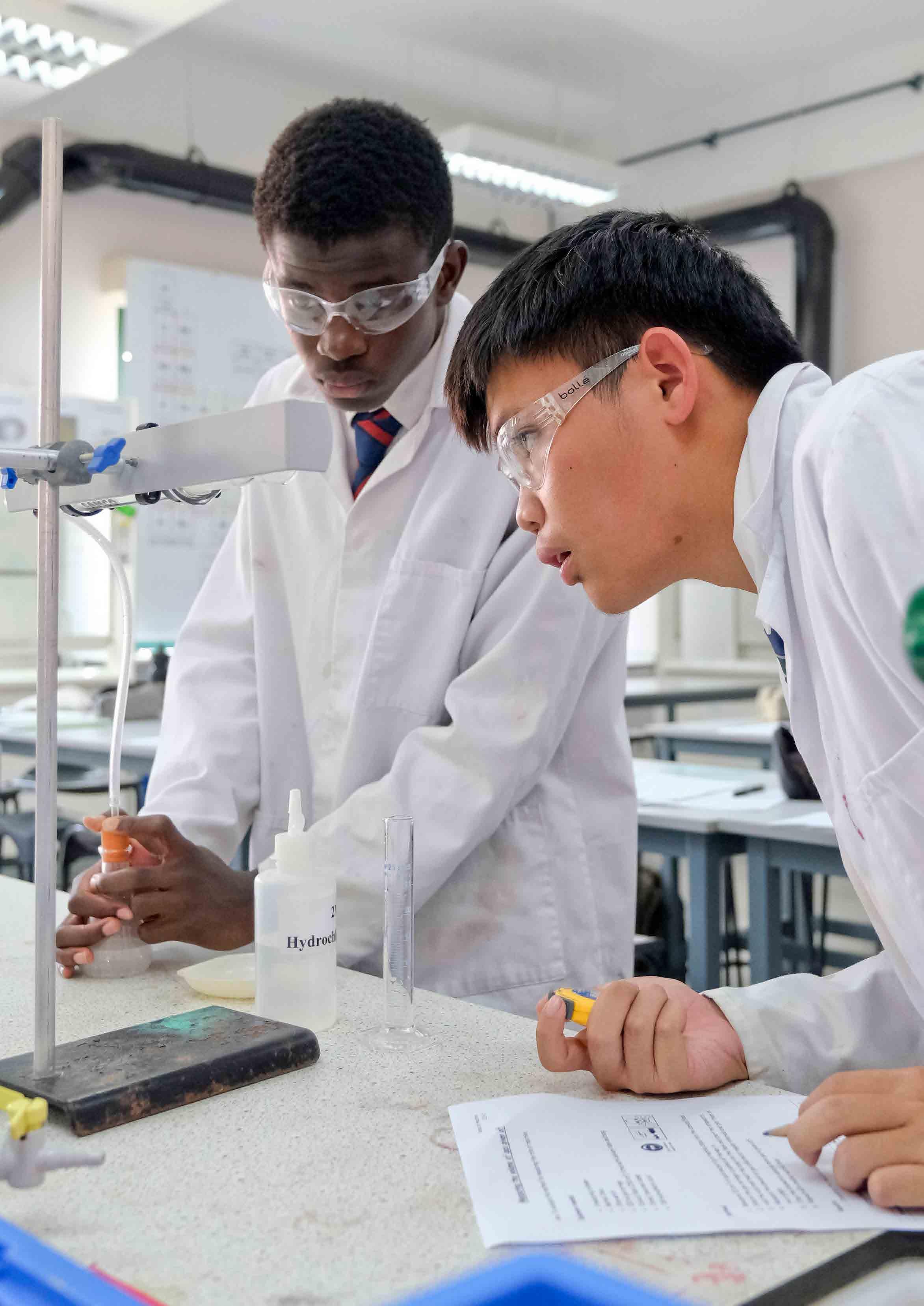

Jerudong International School is an academically selective school. Applicants not suited to the broad academic curriculum offered by the School are unlikely to be offered a place. Limited special needs support is available. Support is also given, where necessary, to pupils whose first language is not English. This may include the Intensive Language Programme.
The academic year in JIS follows the British School system which starts late August and ends early July. The long holiday is taken in July and August. Consequently, students are admitted according to a child’s age in the period 1 September - 31 August. The School operates a policy of placing children in the year level according to their age and it is only in exceptional circumstances that a child would be permitted to be accelerated or held back from their year level.
The first stage in enrolling your child is to visit the Admissions section of the School website: www.jerudonginternationalschool.com
To complete the application process for each child you need to fill out the online form on the school website. For the online application, you must have an electronic copy of:
• your child’s latest school report
• a passport sized photograph
• your child’s Bruneian identity card (IC) (if applicable)
• your child’s birth certificate showing parents names
• the information page of your child’s passport
• both parents’ passport information page
• both parents Bruneian identity card (IC) (if applicable).
• B$200 Application Fee
It is important that all relevant questions are answered on the application form, particularly about the extent of your son or daughter’s tuition in an English medium school and information about any special learning needs that your child has (with accompanying reports and assessments). Before you submit the online application, please carefully read the terms and conditions of enrolment at Jerudong International School.
There is a B$200 application fee to be paid when the application is submitted. A receipt will be issued for you to claim reimbursement of the application fee from your employer (if applicable). Overseas applicants can arrange a bank transfer or pay by credit card. Any questions? Email: admissions@jis.edu.bn
The Vice Principal (Head of Senior School) and senior members of the Academic team assess each Senior School application. Students are required to sit for Entrance Tests. If applying from overseas, it may be possible to liaise with your child’s current school to arrange for them to take the tests. As the I/GCSE programme is a 2 year programme, it is unusual and rare for JIS to accept students into Year 11 (the second year of the programme). Please contact the Admissions team for more information.
Bruneian students are also required to sit a Bahasa Melayu placement test. This is not part of the entrance assessment for JIS but is to assist us in placing a student in the correct Bahasa Melayu class if offered a place in JIS.
1. Your child will need to sit an online, multiple choice Cognitive Ability Test (CAT). The test is divided into three sections with a short break between each section. It takes about 2 hours in total (including breaks). This online test is not a curriculum test. It measures verbal, mathematical, non-verbal and spatial intelligence and is a series of short tests designed to assess four different areas:
• Verbal Reasoning Test – thinking with words
• Quantitative (or Numerical) Reasoning Test – thinking with numbers
• Non Verbal Reasoning Test – thinking with shapes
• Spatial Ability Test – thinking with shape and space
The reason for these tests is that we receive applications from children who have been educated in many different countries / curriculum across the world. This gives us a consistent way of comparing students from many different backgrounds.

2. In addition your child will need to take two online curriculum tests. Each test is about 1 hour.
• Progress Test in Maths (PTM)
• Progress Test in English (PTE)
3. Depending on the computer test and exam paper results, we may ask a specialist teacher to have a further assessment with your child. Students who attain stanine 1, 2, 3 or 4 in their CAT test are referred to the Head of Learning Support and/or the Head of English as an Additional Language for further assessment.
4. The results of the online tests and any further assessment, will then be shown to the Vice Principal / Head of Senior School, together with your child’s most recent school report. At this stage, the Head of Senior School will decide if your child will progress to the final stage.
5. The final stage of the process is to meet a senior member of the Senior School, usually the Head of Senior School, who will interview your child. Each interview takes approximately thirty minutes and gives your child an opportunity to talk about their interests, ask questions about the school and discover more about the structure of the school and its academic programme. Students will select their I/GCSE option subjects in consultation during this interview. A parent must accompany the student to the interview.
You will be notified by the Registrar either at the end of the interview process or a few days later regarding the enrolment of your child. The final decision is a collaboration between the Vice Principal (Head of Senior School), the Senior Registrar and where appropriate, the Head of Learning Support. Where a child does not meet the entry levels required or is borderline, referral to the Principal can also occur.
Successful applicants receive a formal letter of offer and an endorsed Student Pass* application (for non-Bruneian students). There is an acceptance form attached to the offer letter that needs to be signed and returned to the Admissions Office. Once this has been received and the school deposit paid, this formally completes the enrolment process.
The Admissions staff are happy to show you the site at any time during school hours (8 am–2 pm, Monday to Thursday). Boarding House tours are available before 2 pm most days. Each tour takes approximately one hour. Please phone at least 24 hours in advance to make an appointment.
Please visit our website for details of our Open Days. If you live outside Brunei, we are happy to arrange an online meeting.
The Brunei Government requires all foreign students to have a Student Pass in order to study in Brunei. The form has to be endorsed by the school and countersigned by the Principal. The form is available from JIS Admissions Office. The application process for Boarding House students whose family resides outside of Brunei is handled by an agent retained by the school. The agent charges a fee in addition to the cost of the Student Pass. Students may not commence their studies at the school without a valid Student Pass. The Student Pass is in addition to a Dependent Pass. For any questions, please email visa@jis.edu.bn
The information in this Booklet is correct as at 20 August 2025. The School reserves the right to make changes where deemed necessary.
